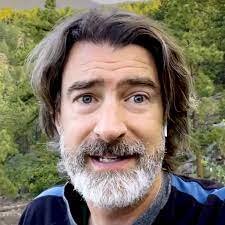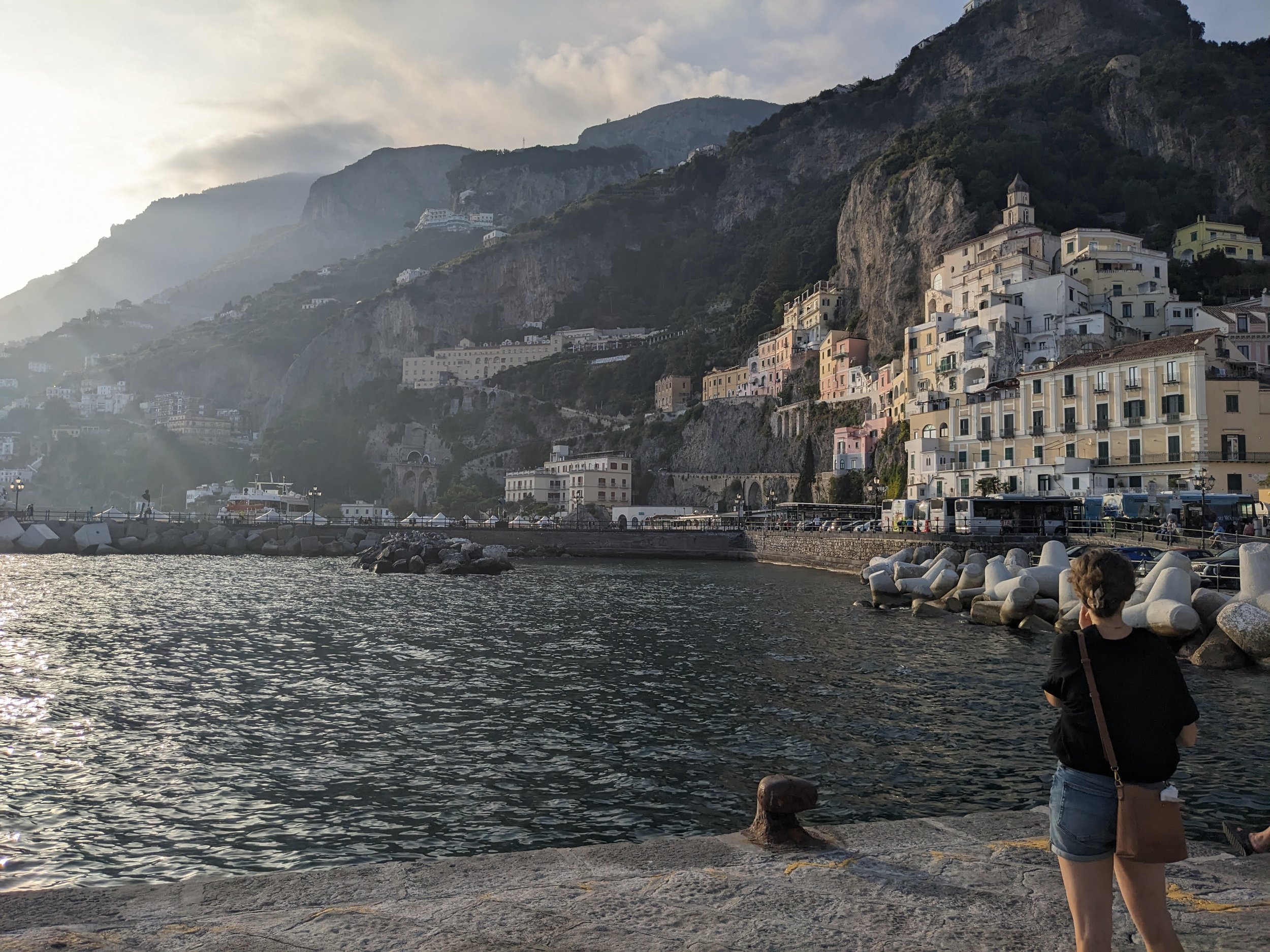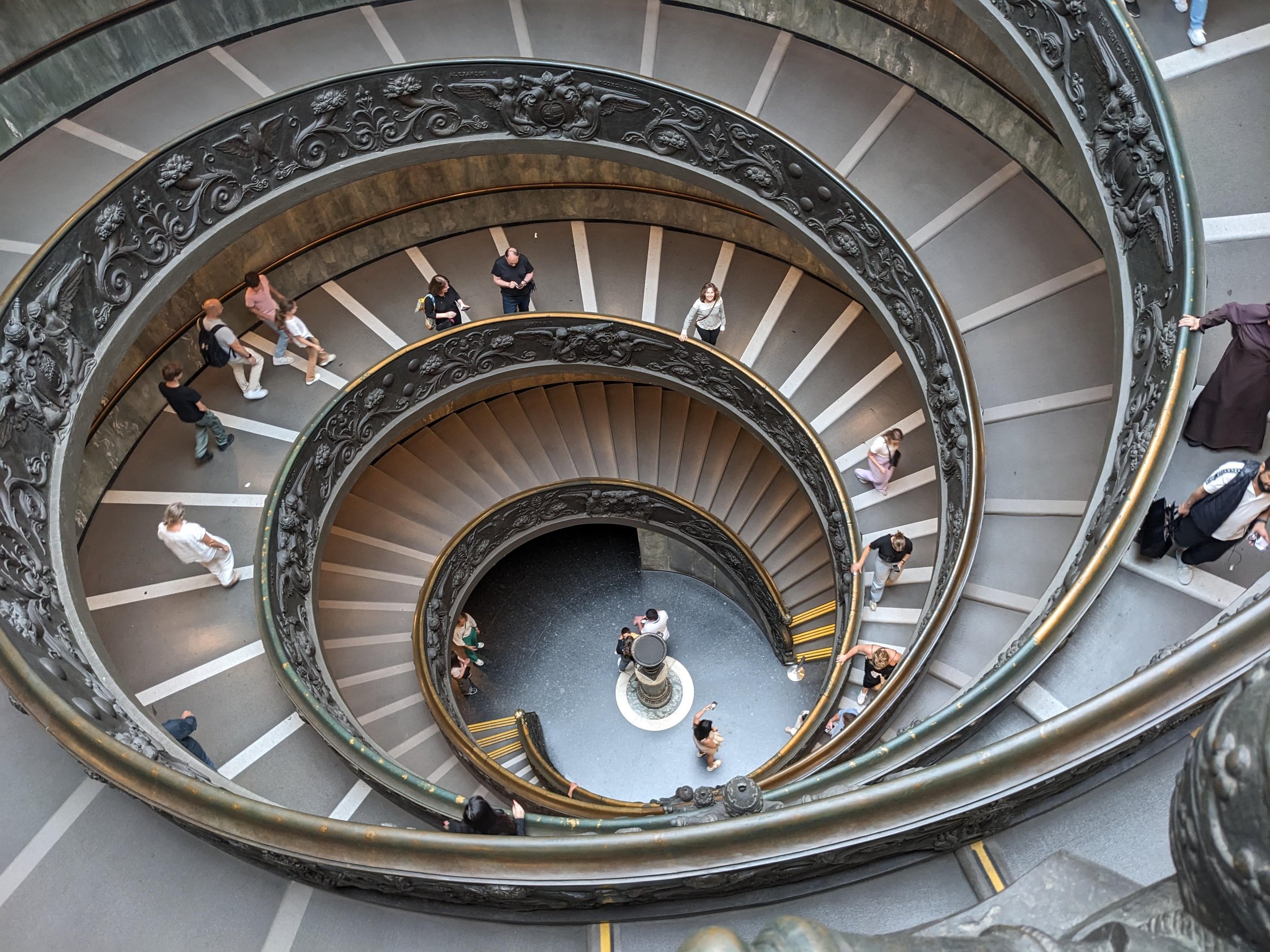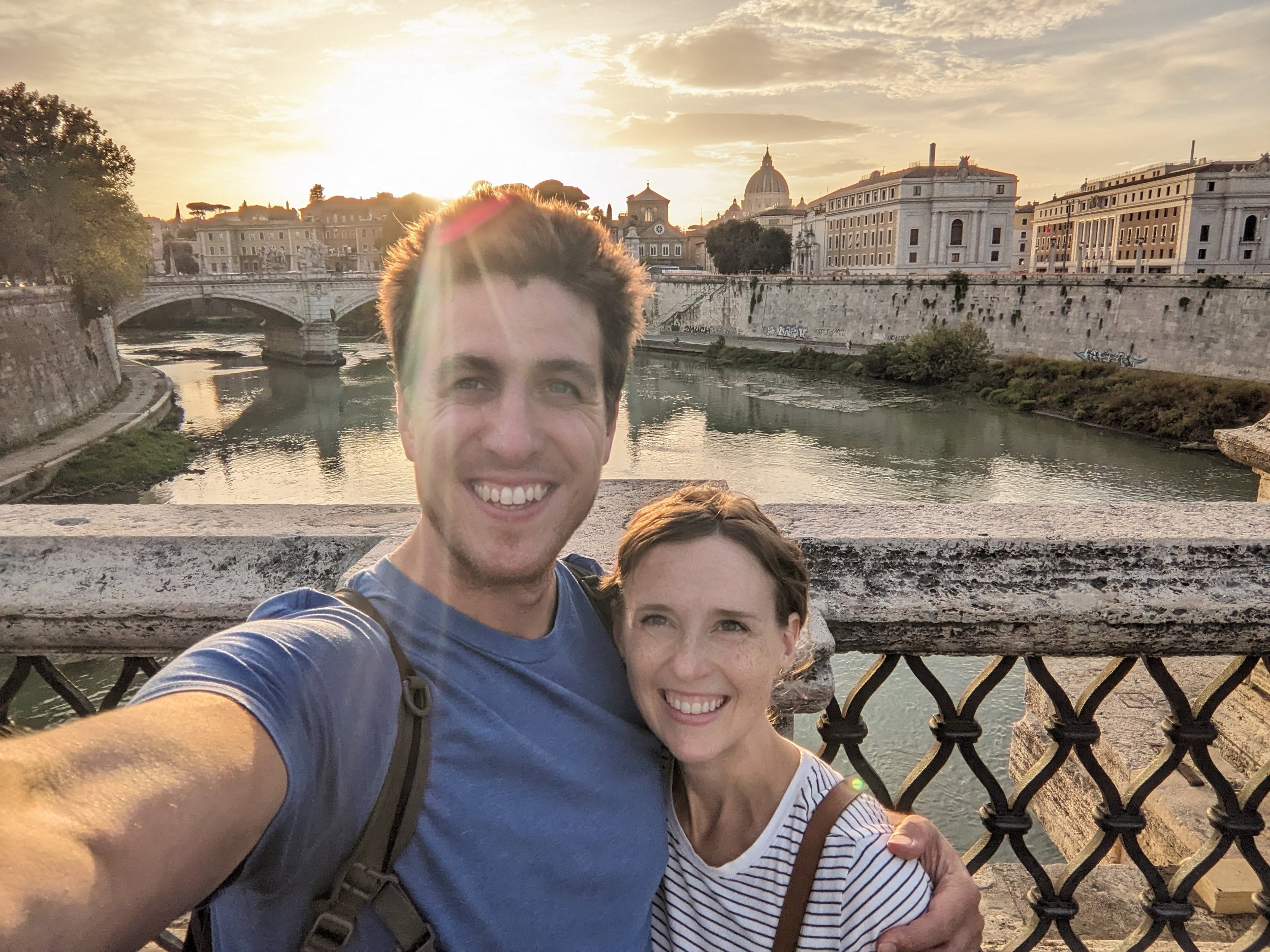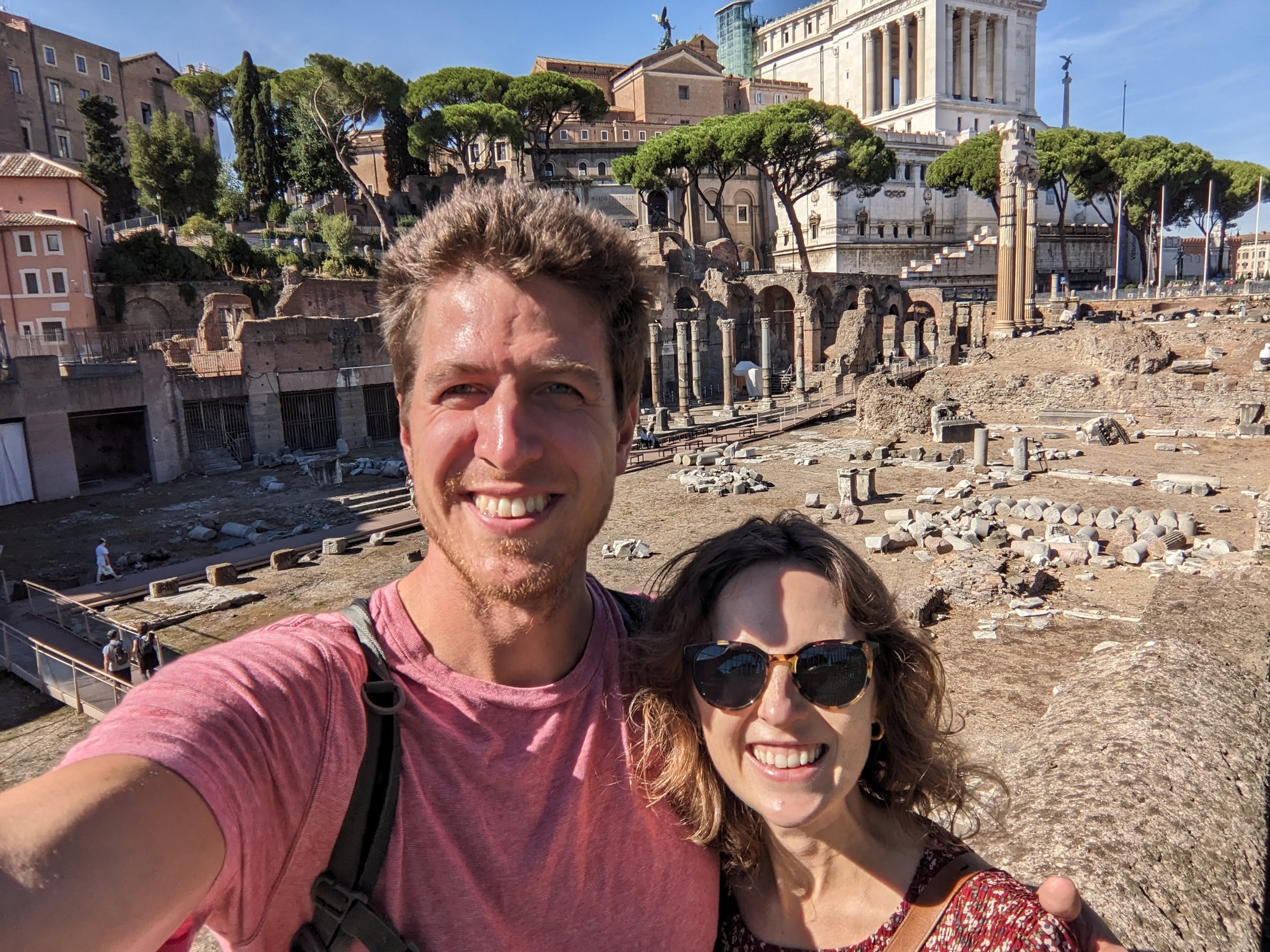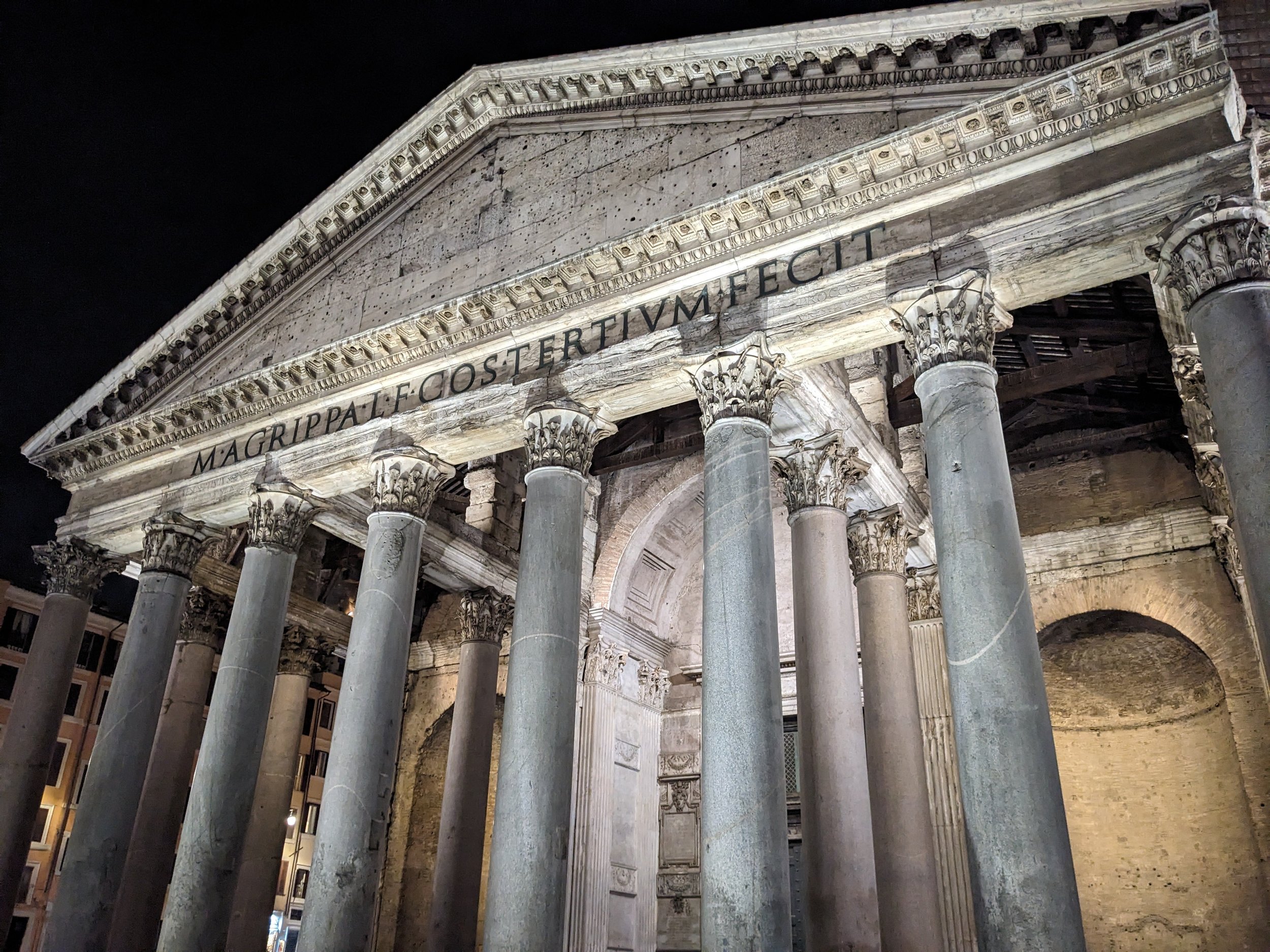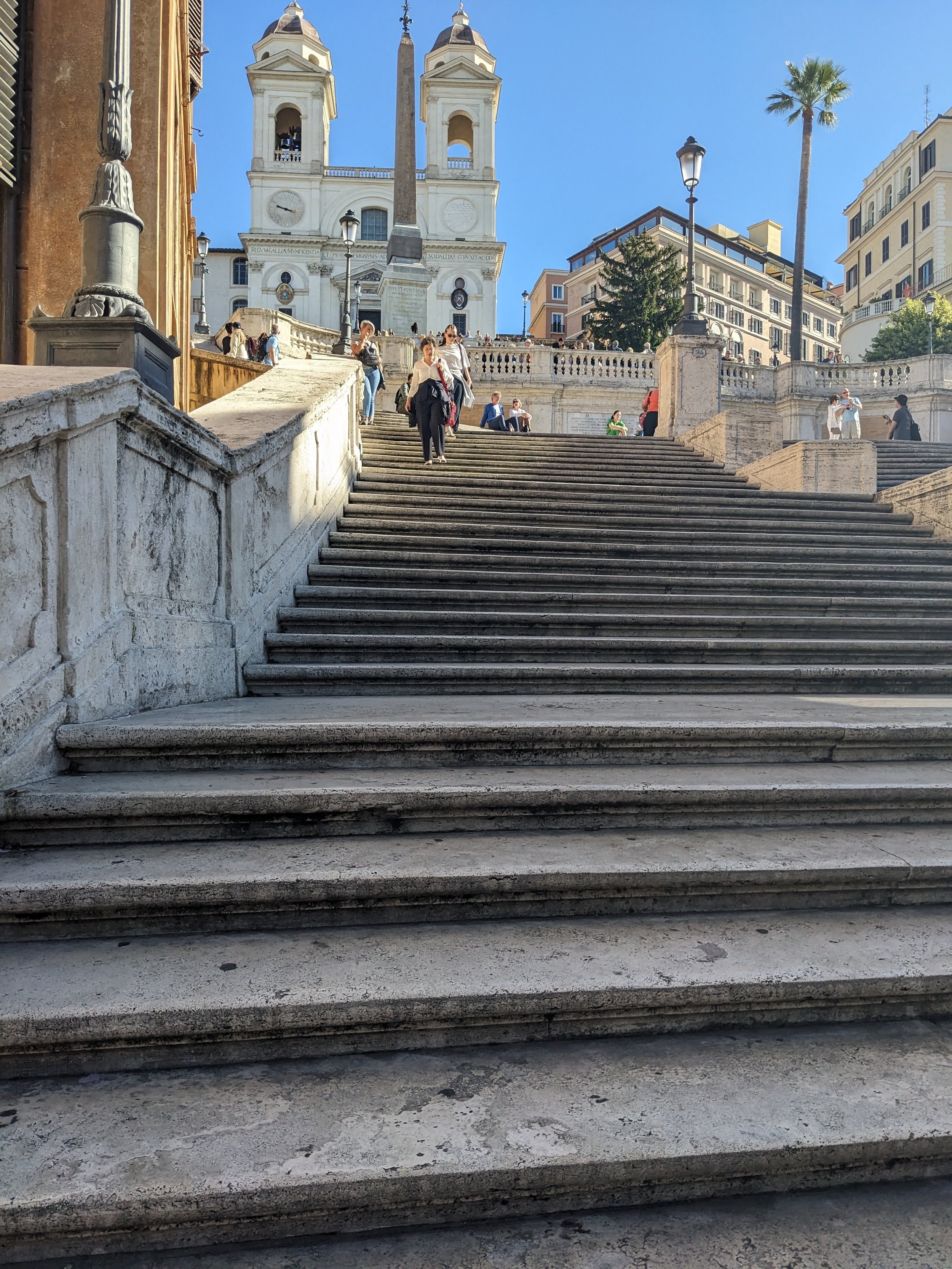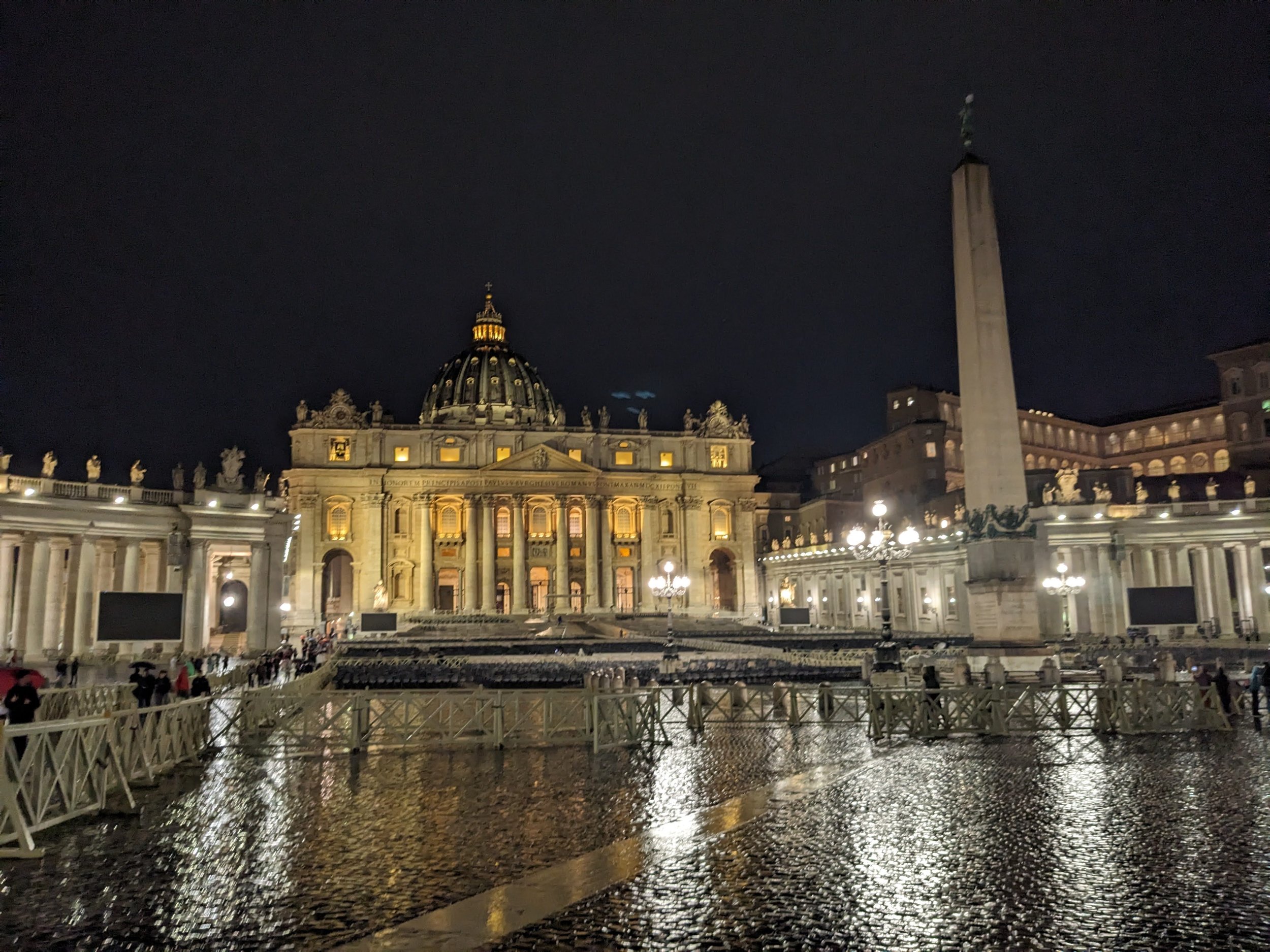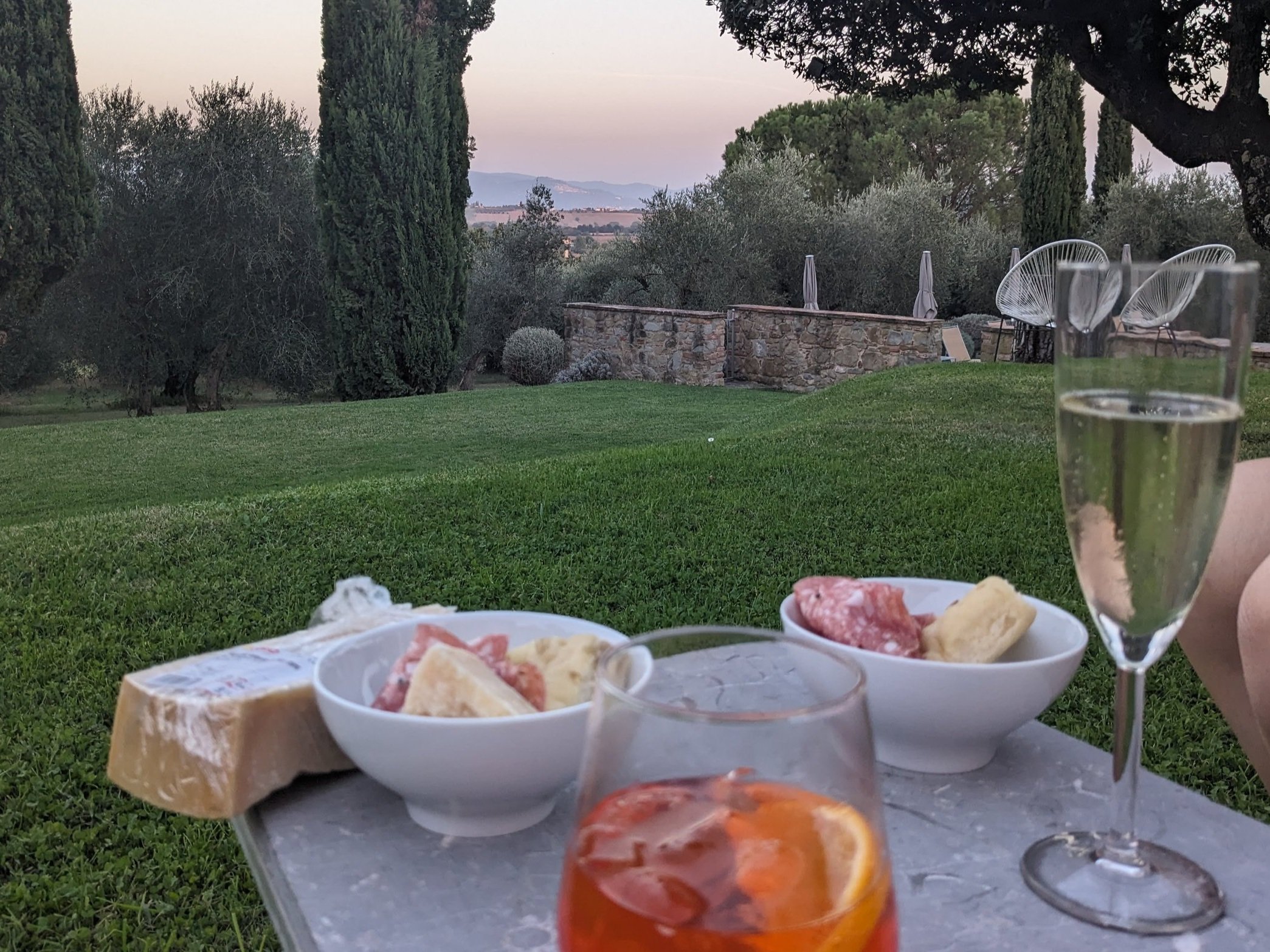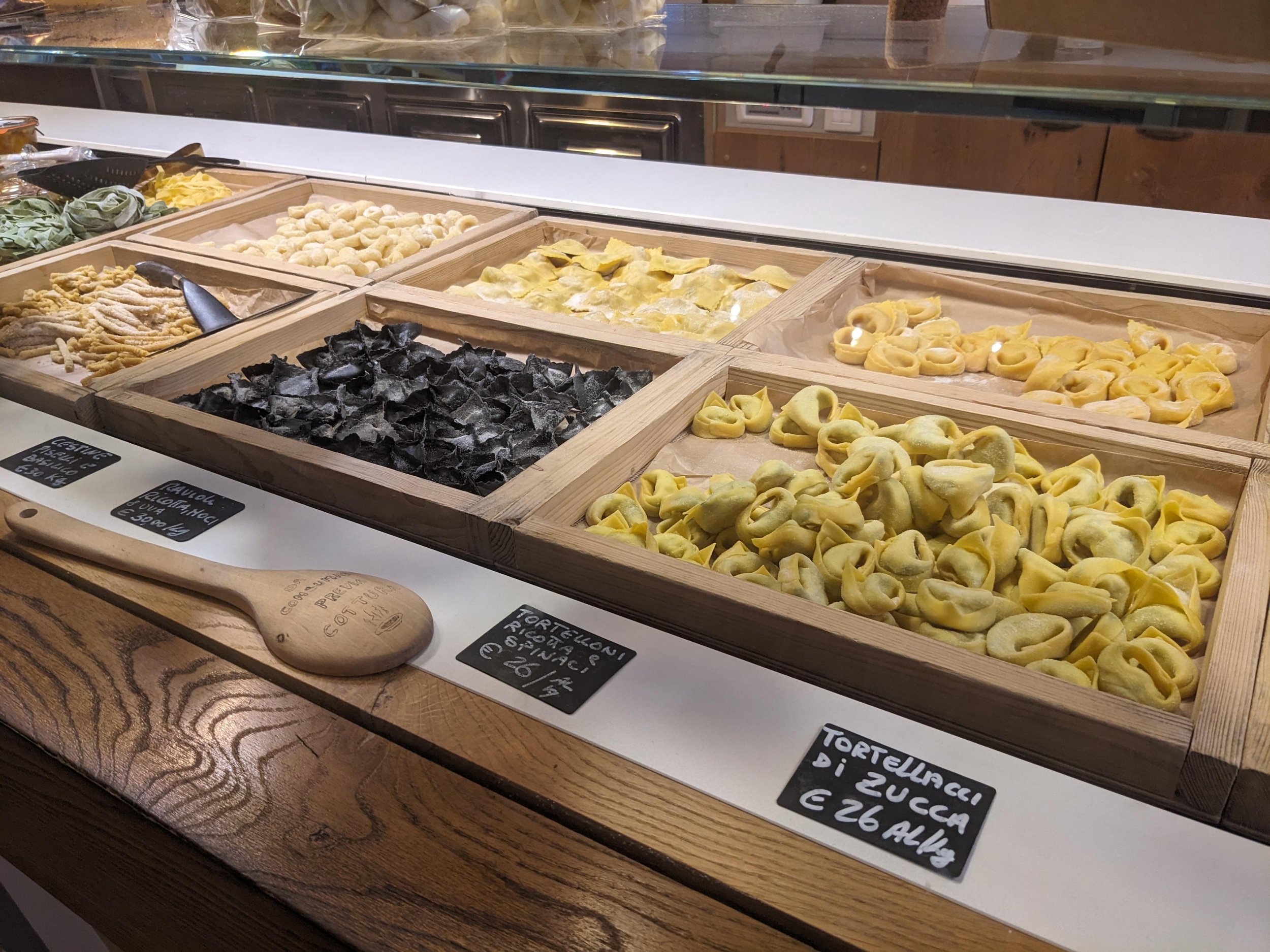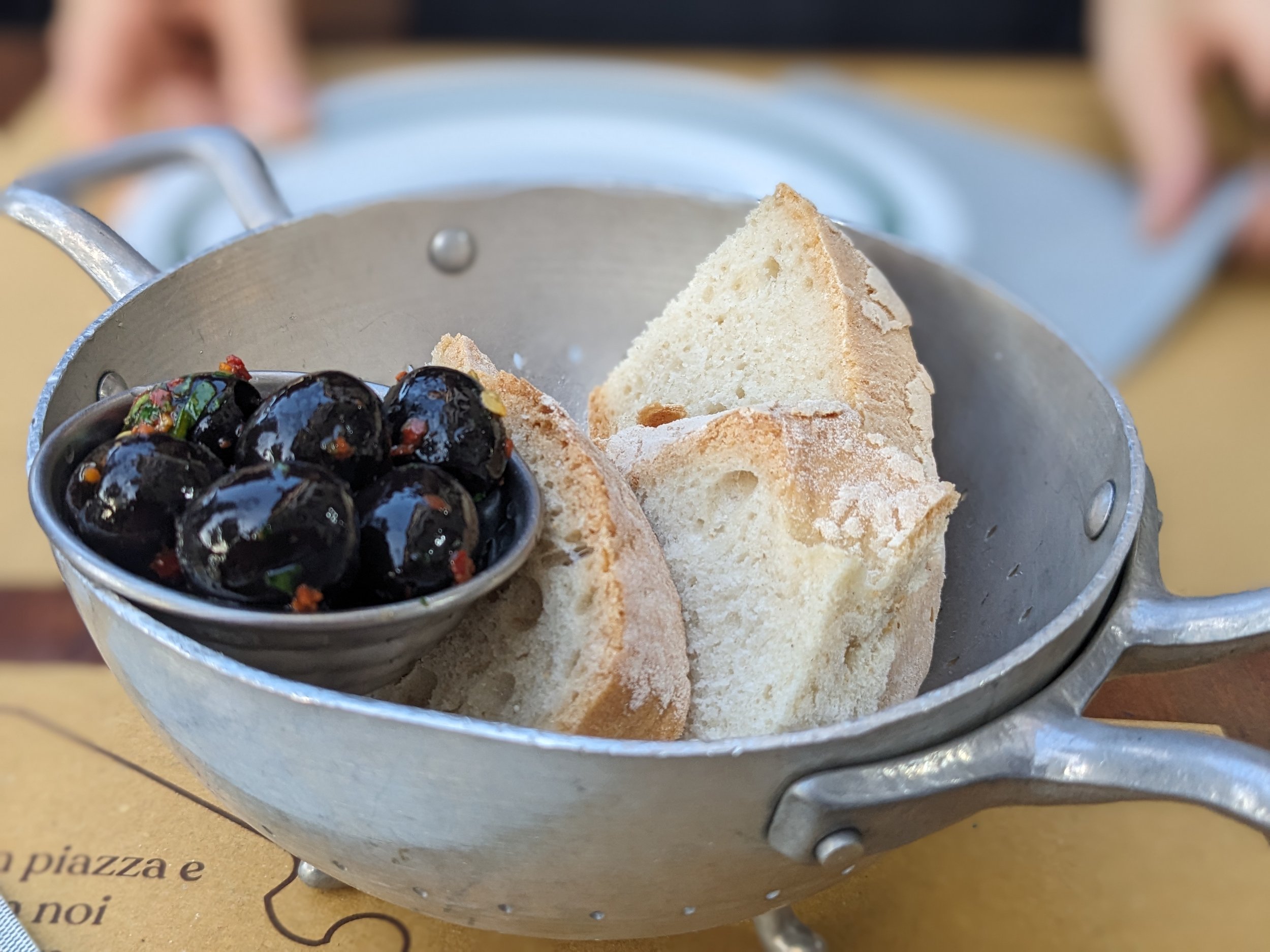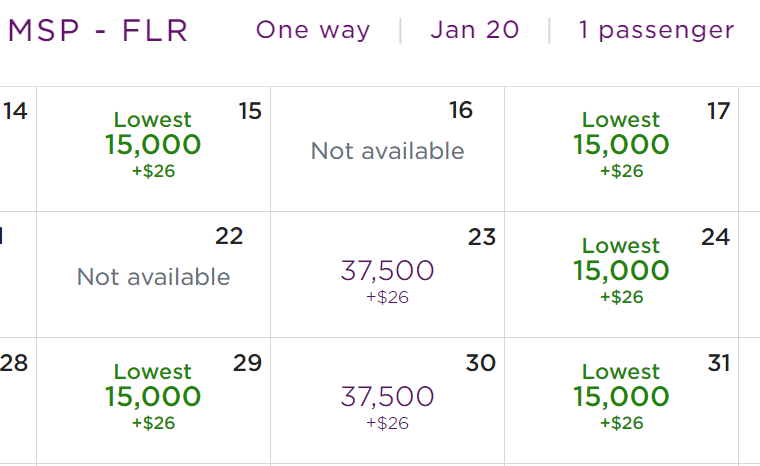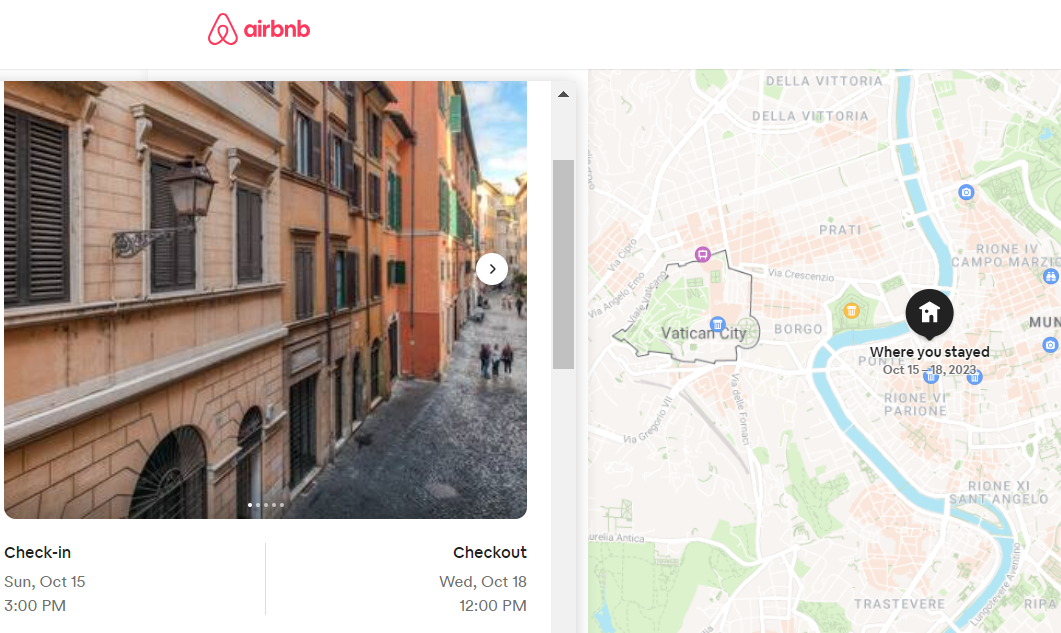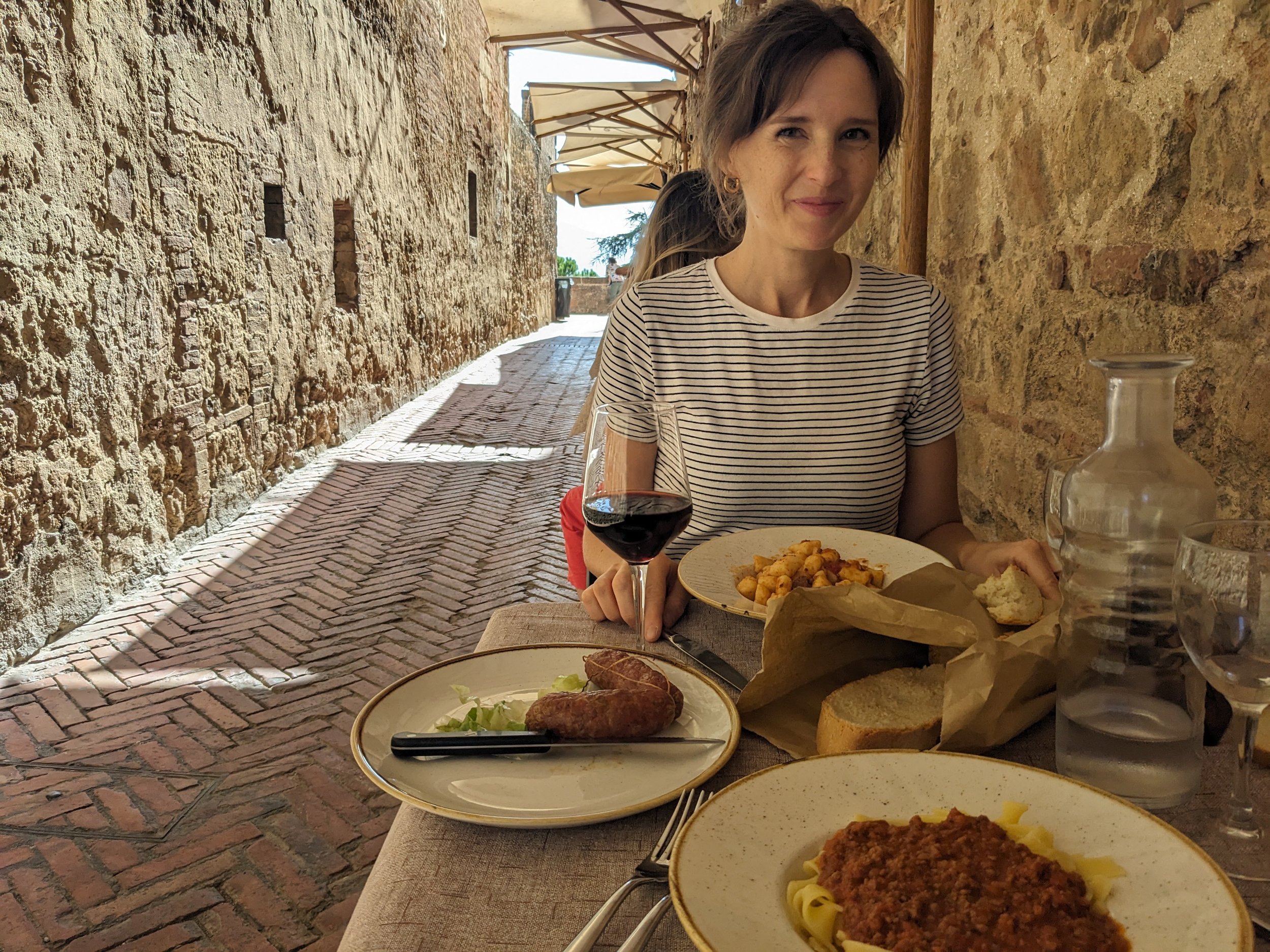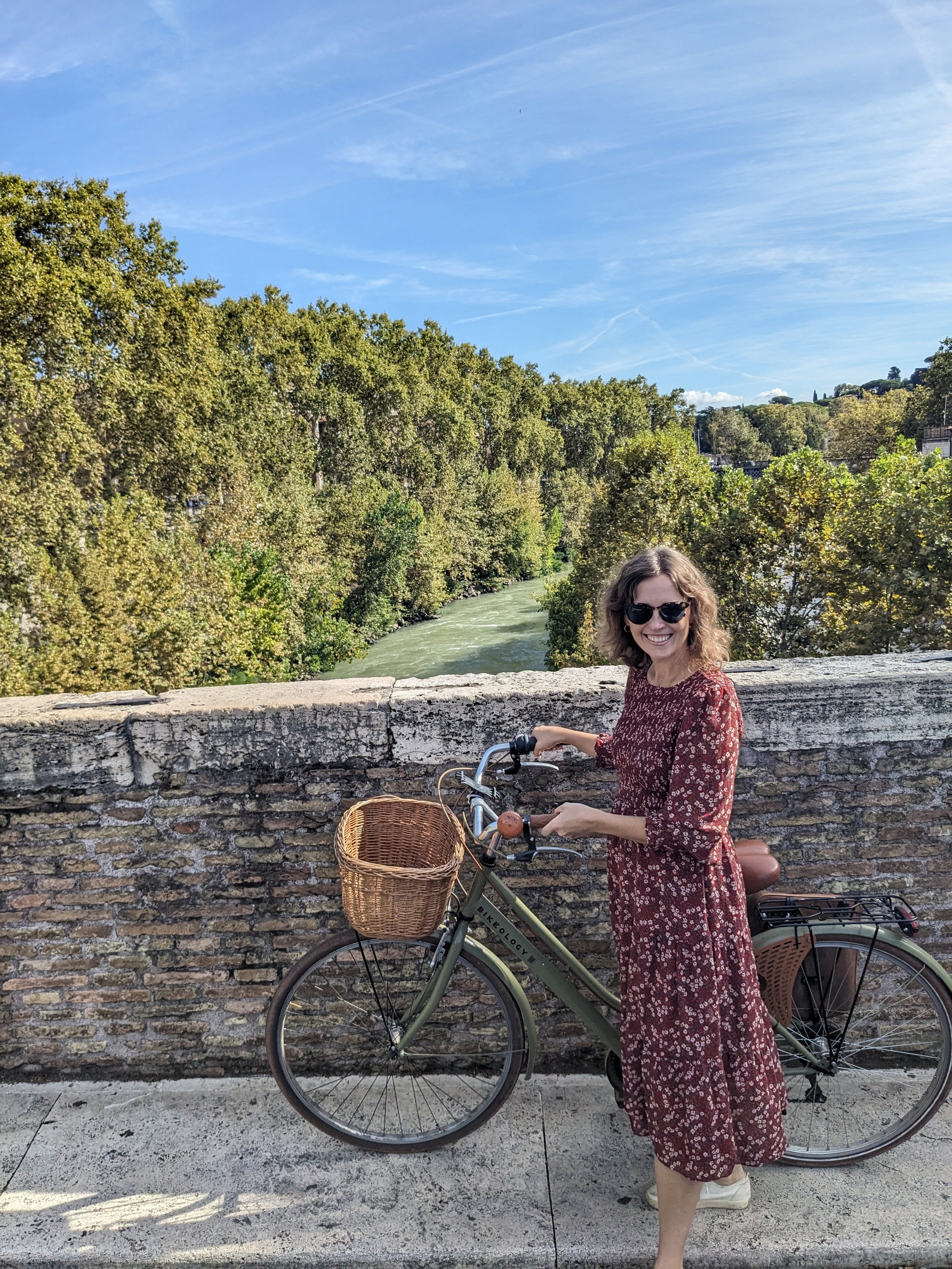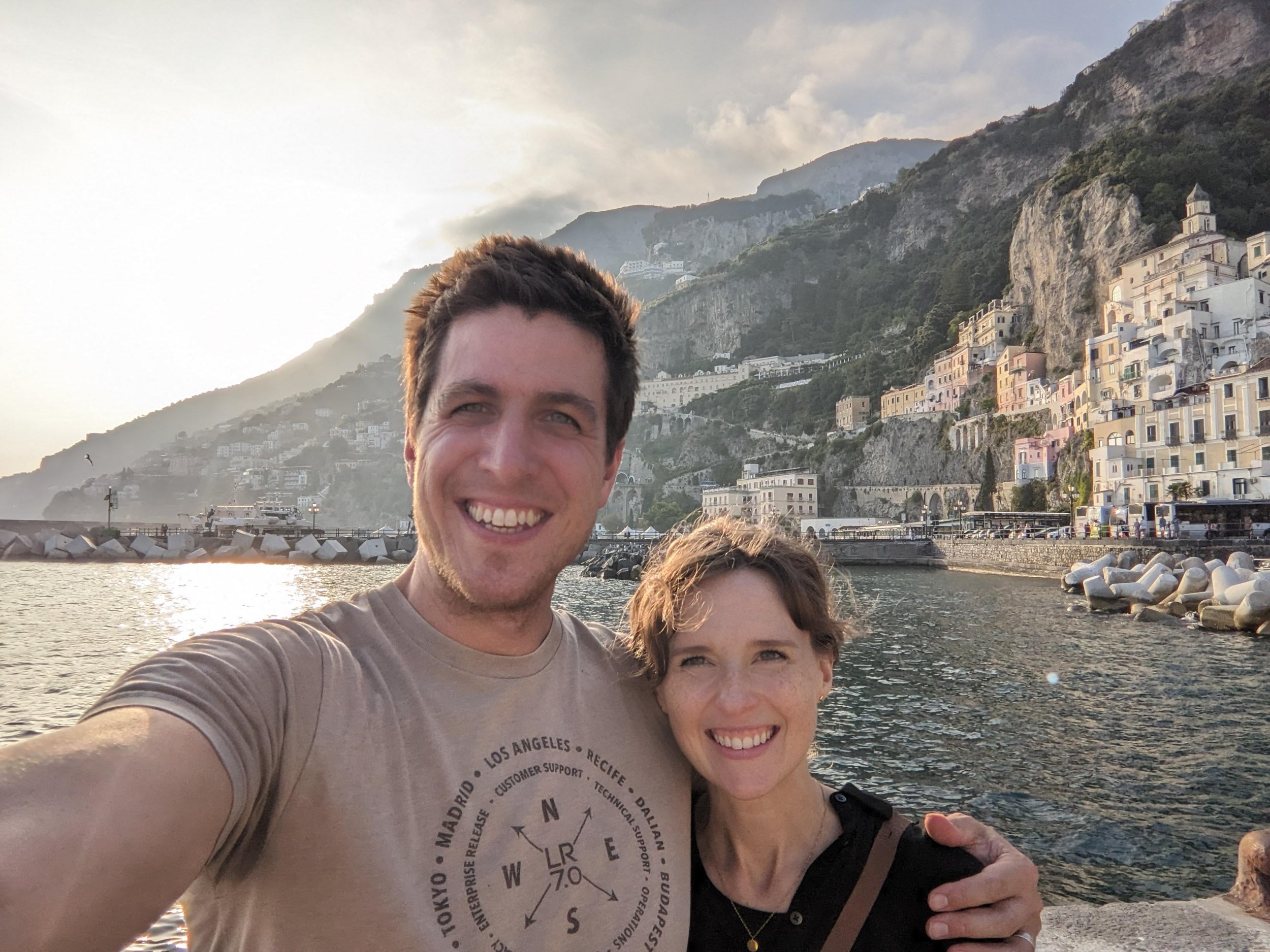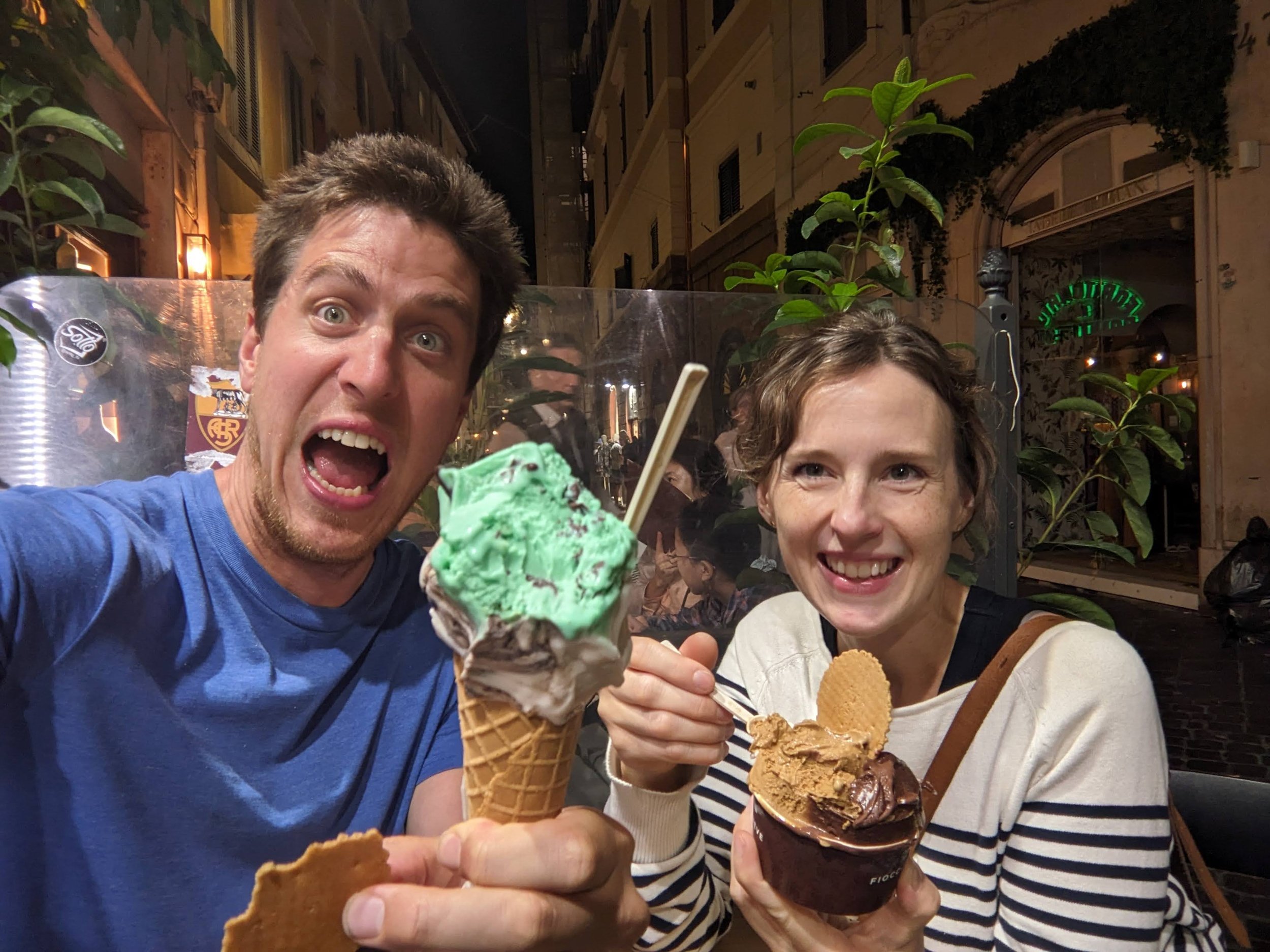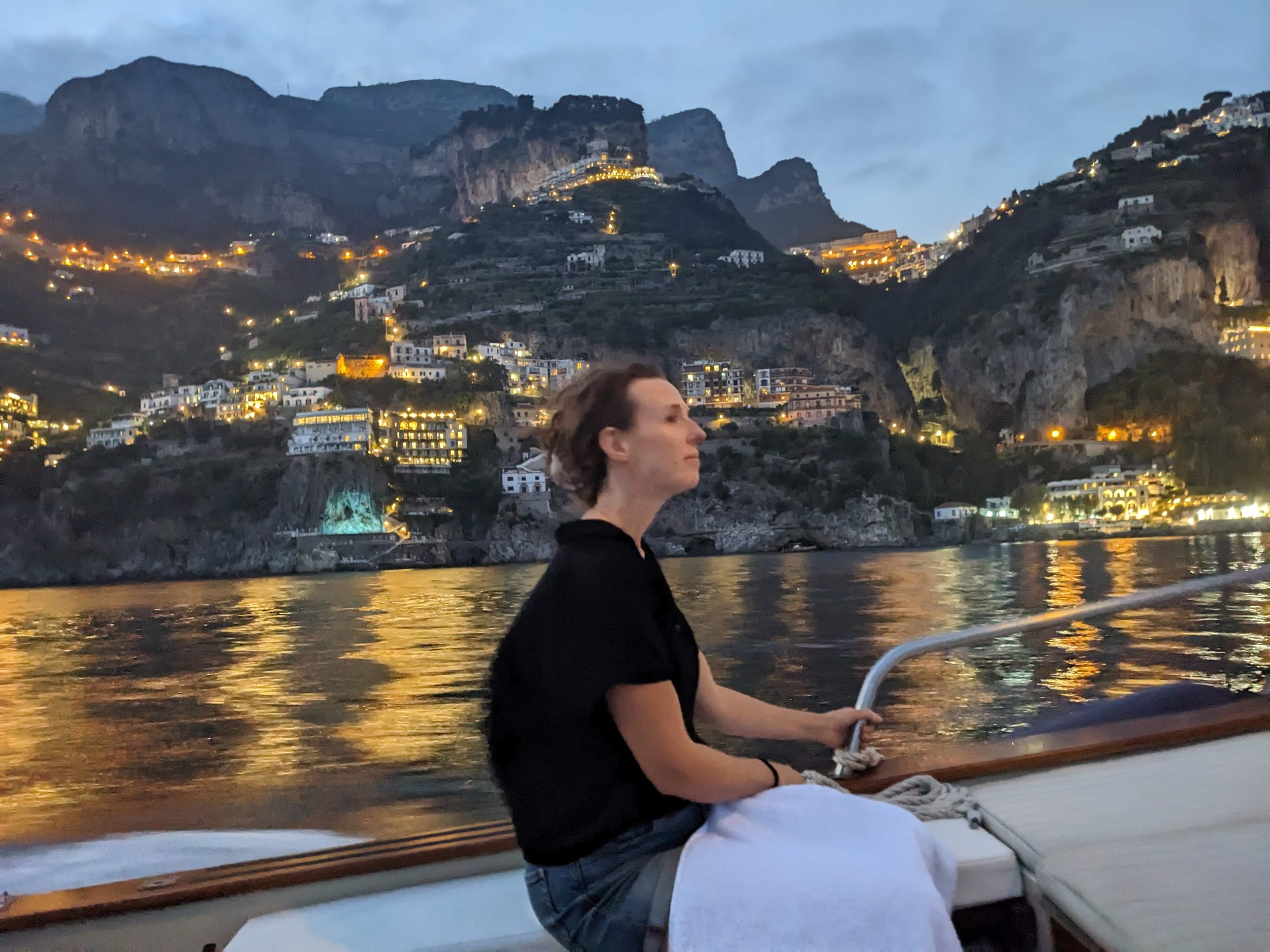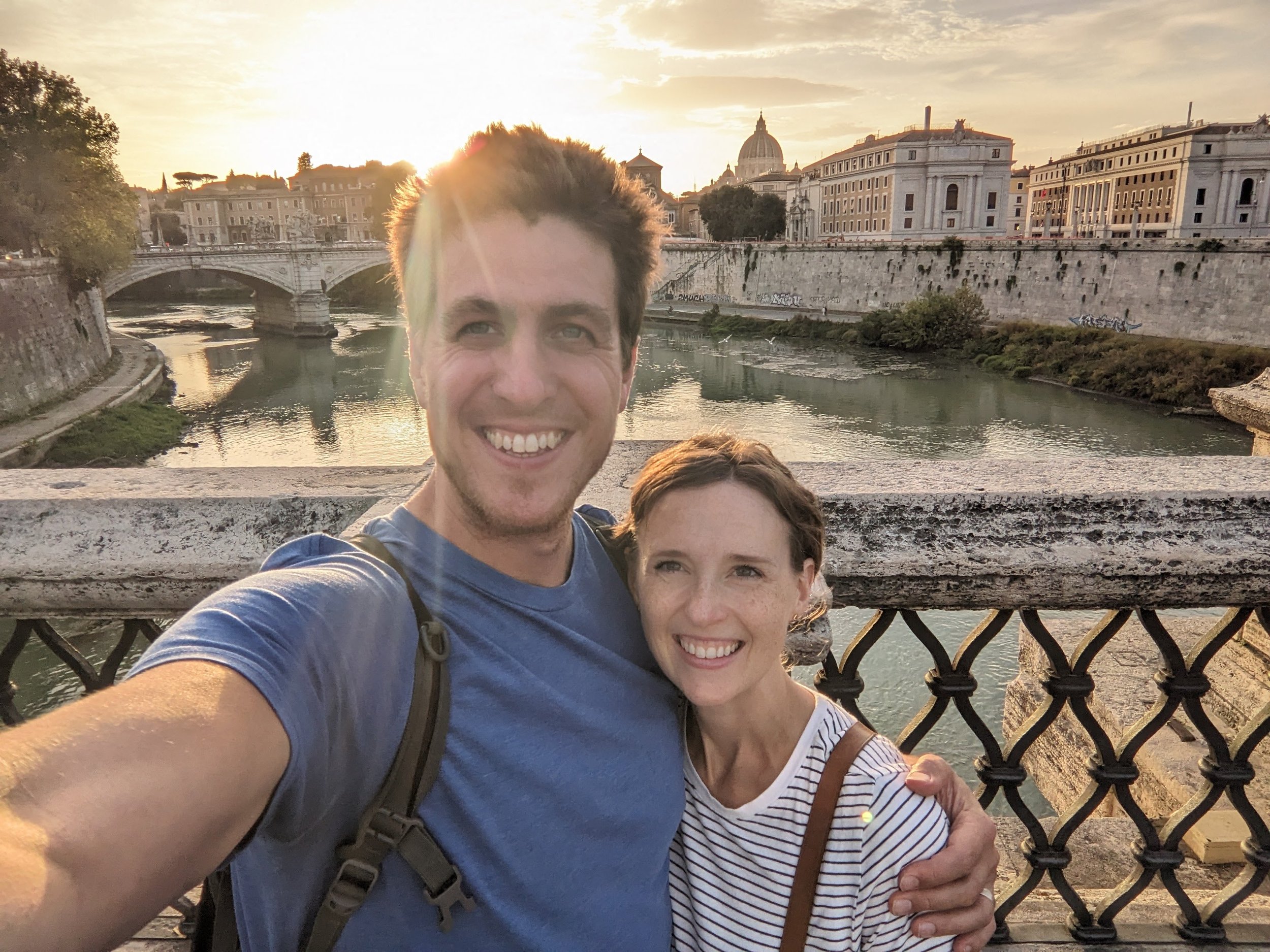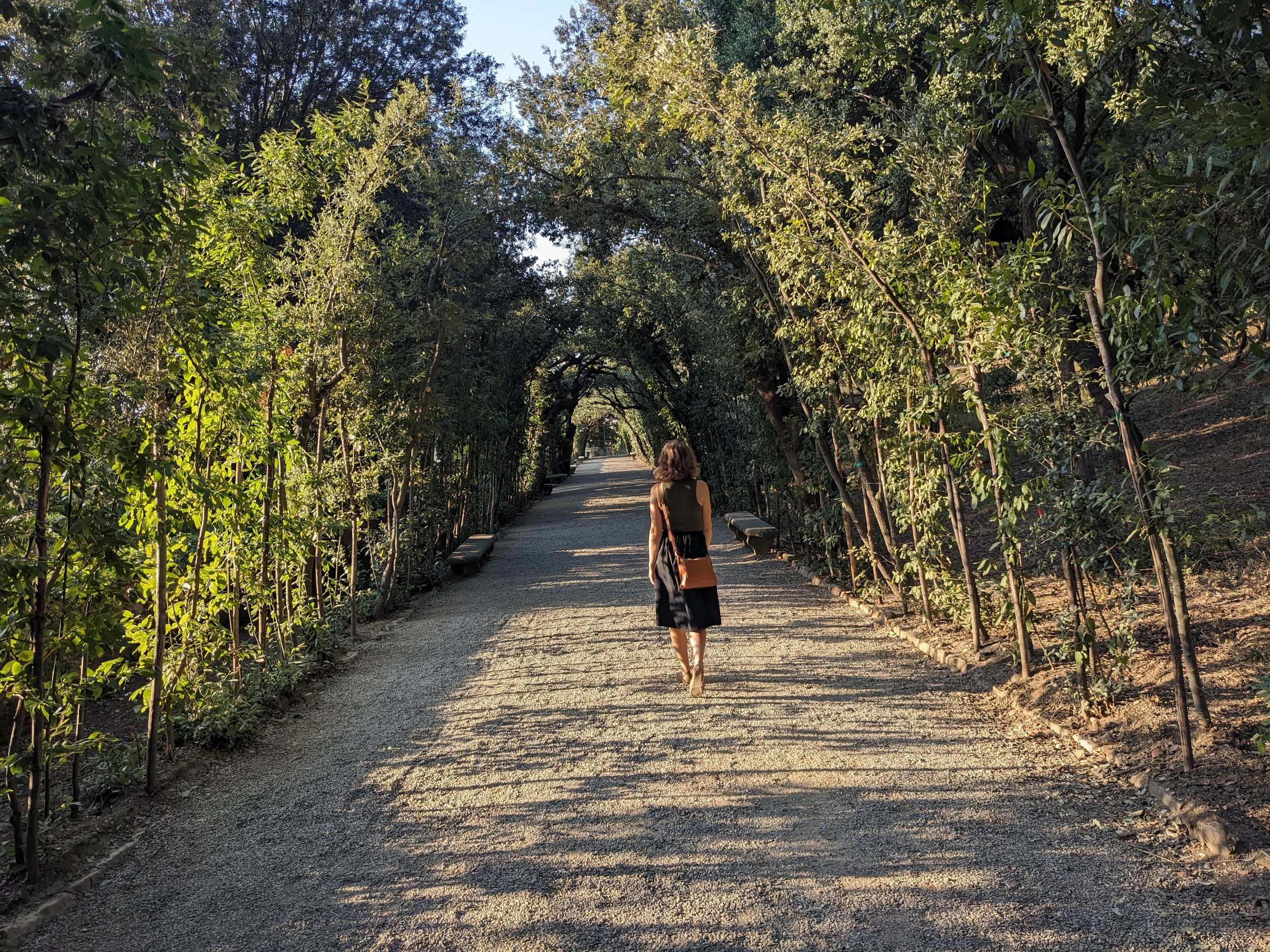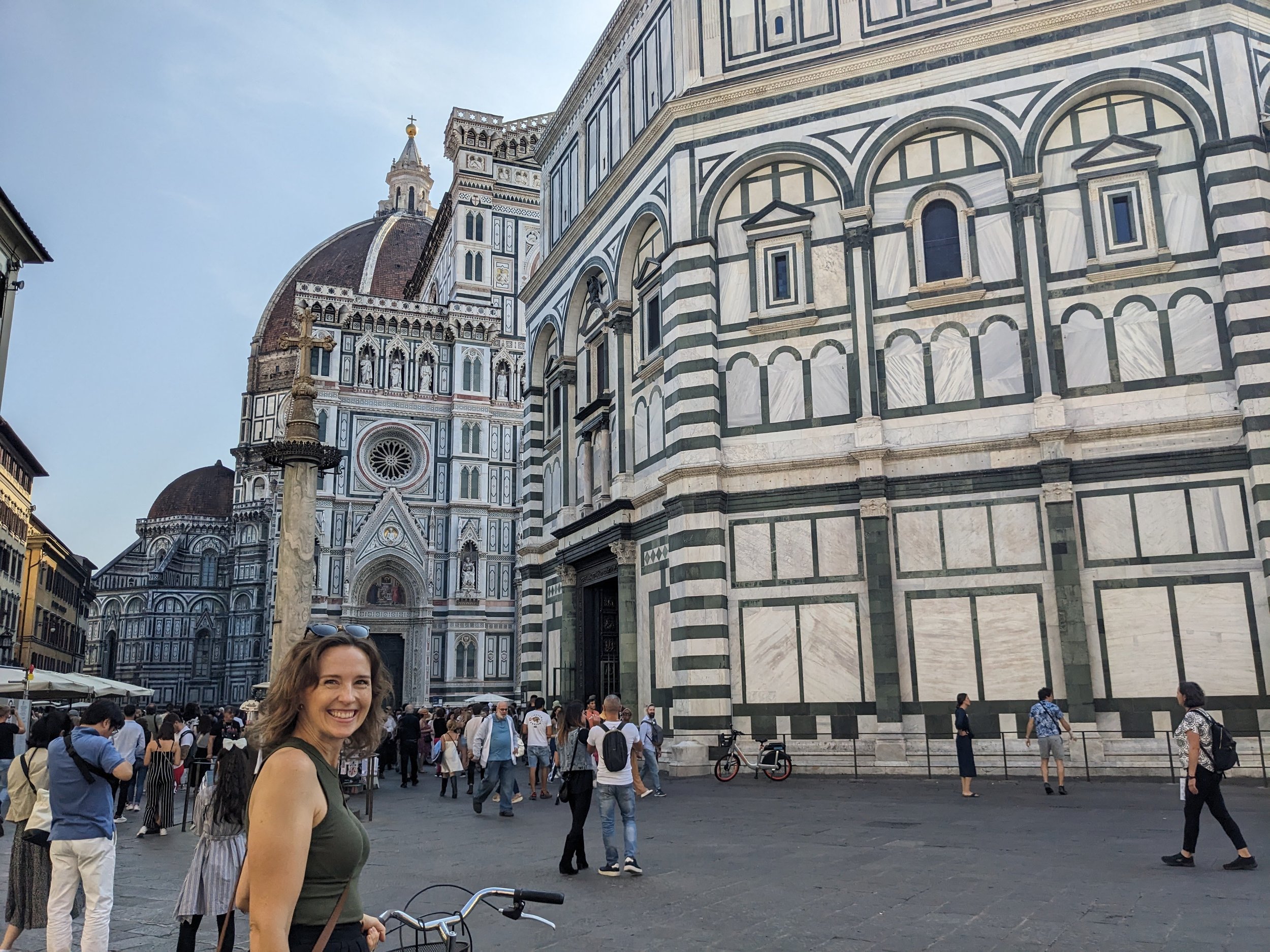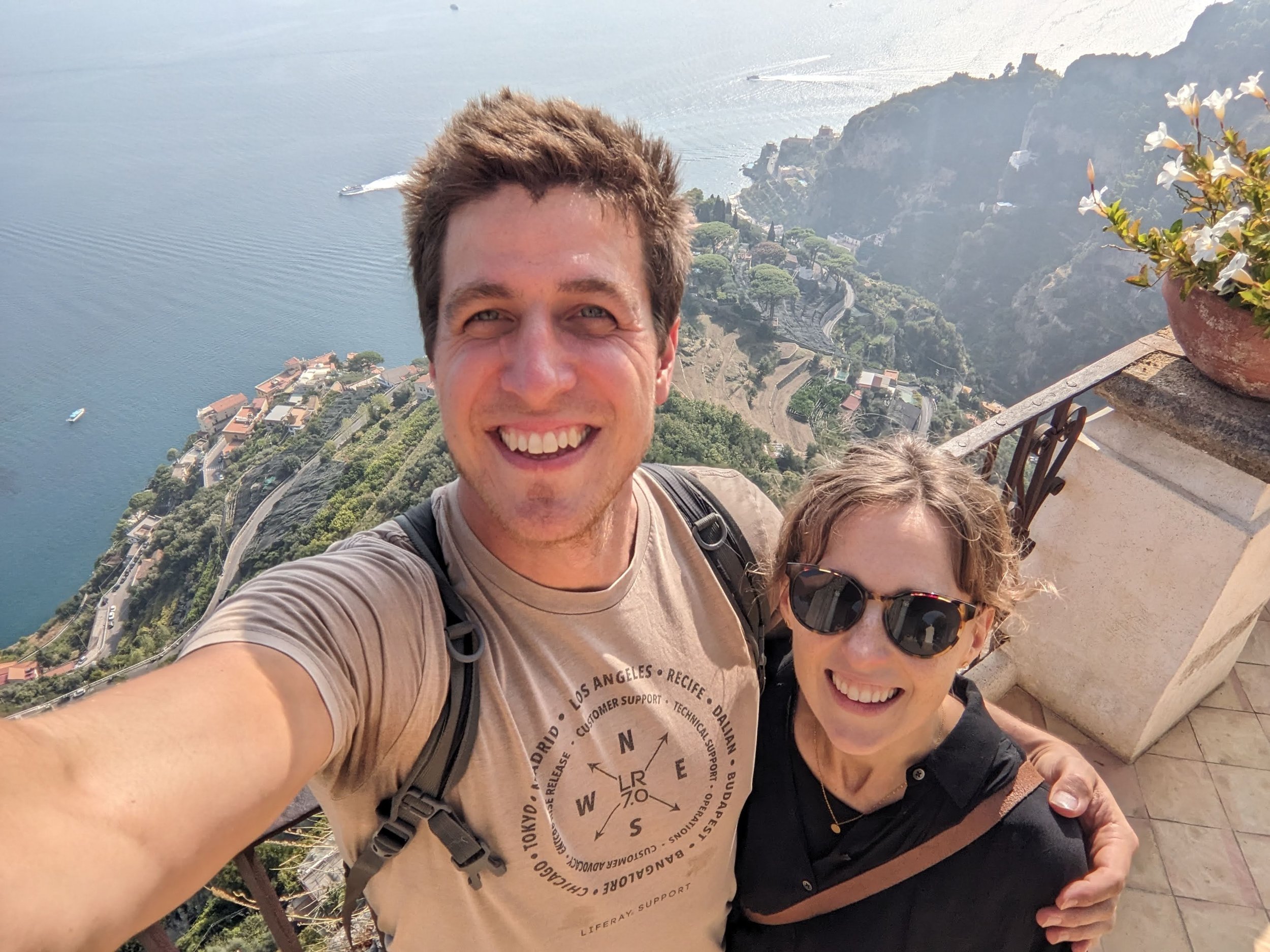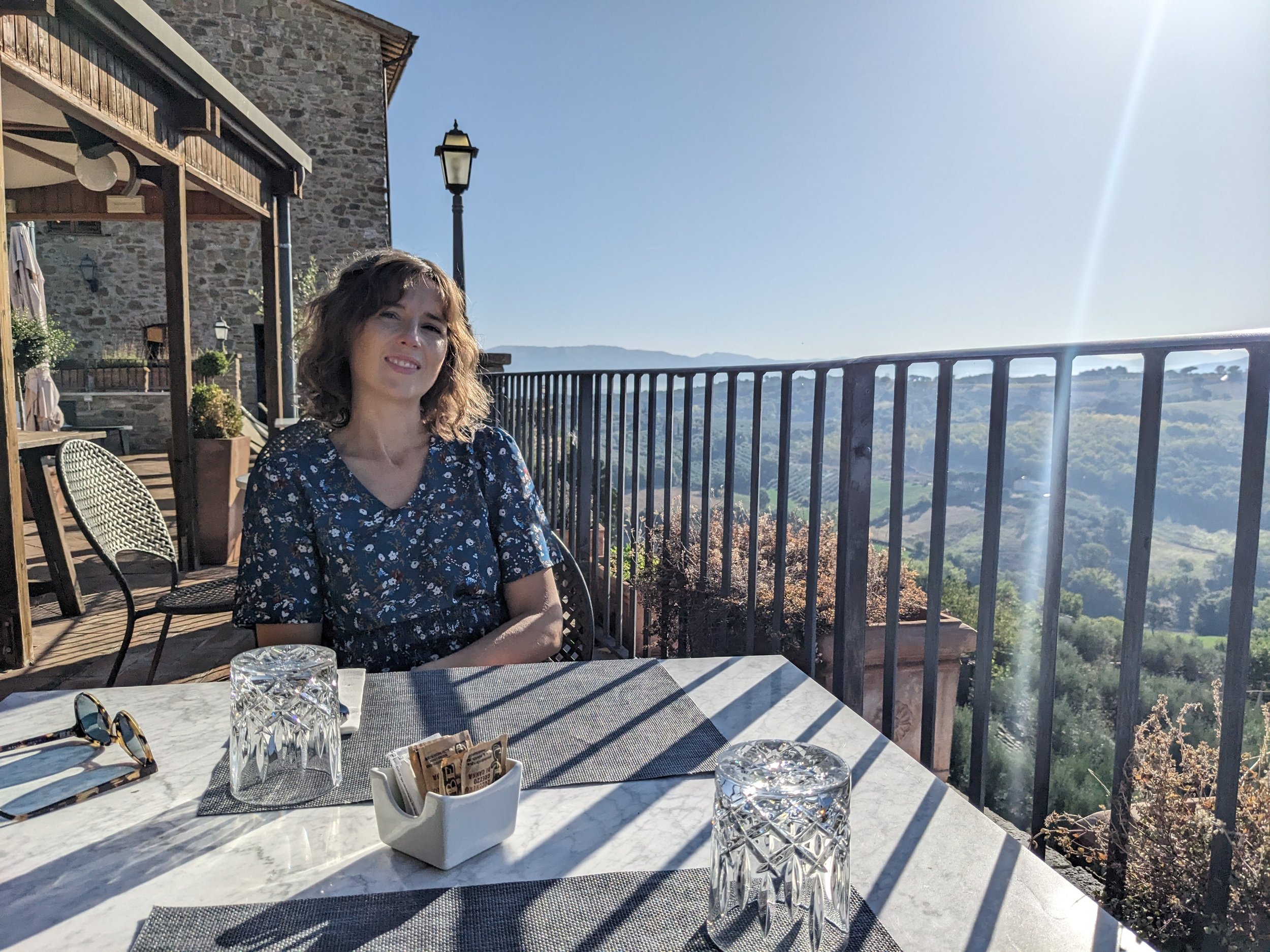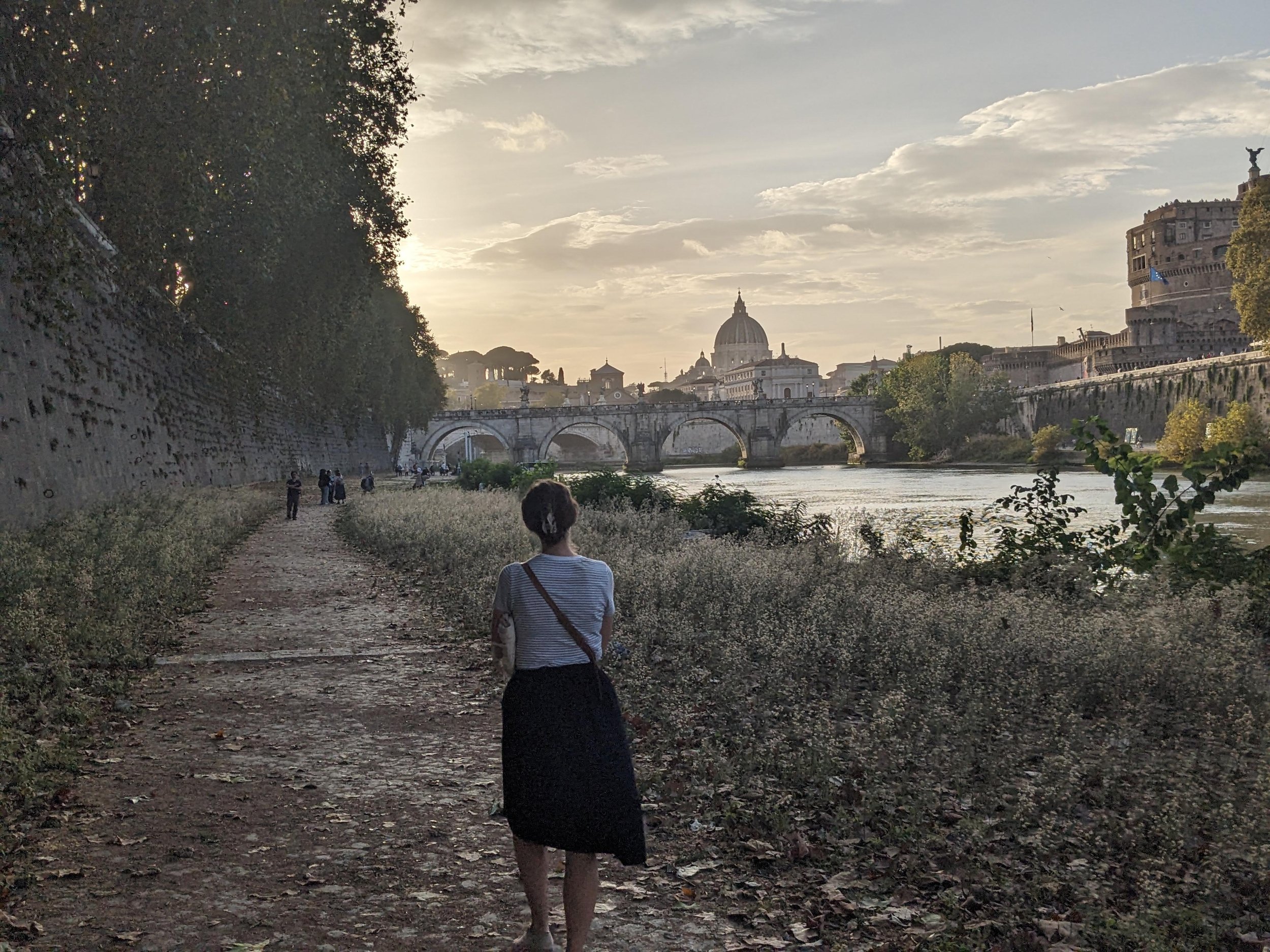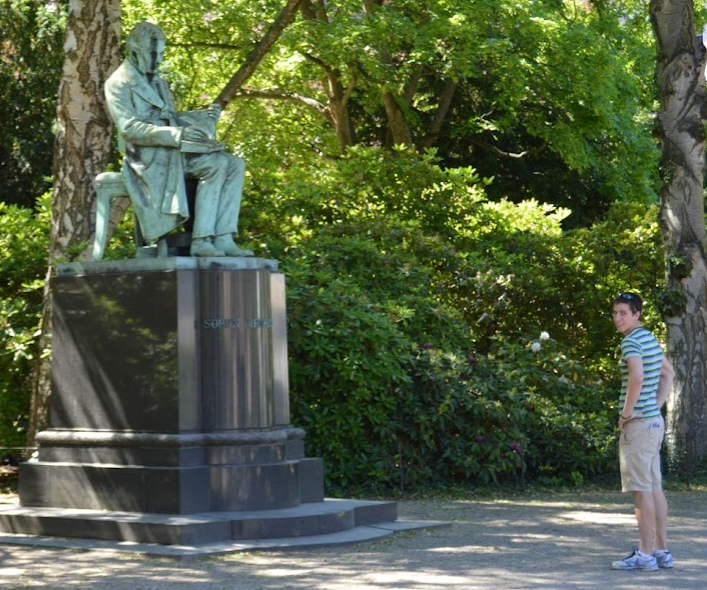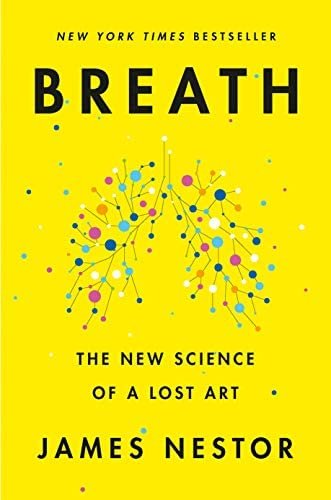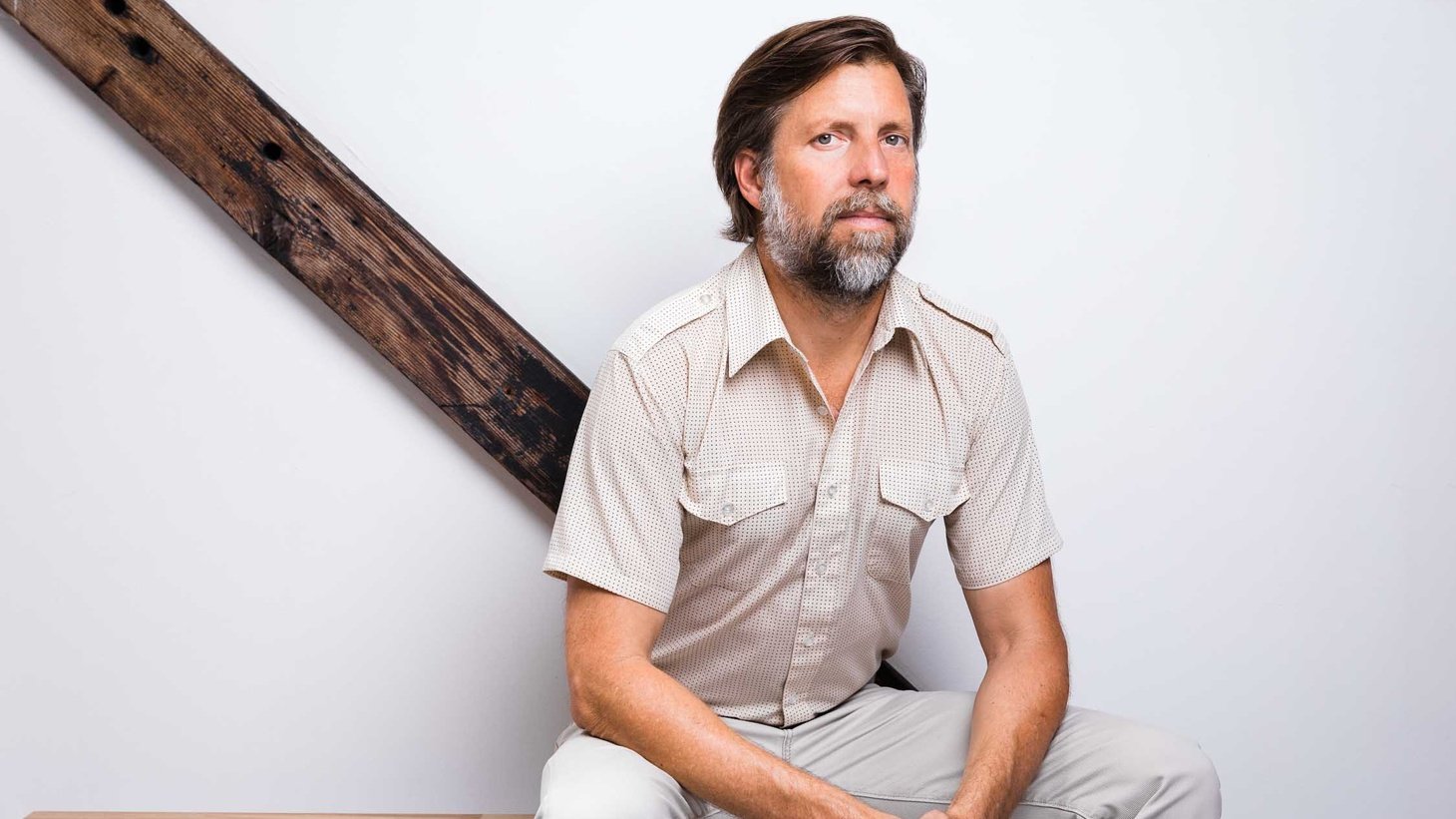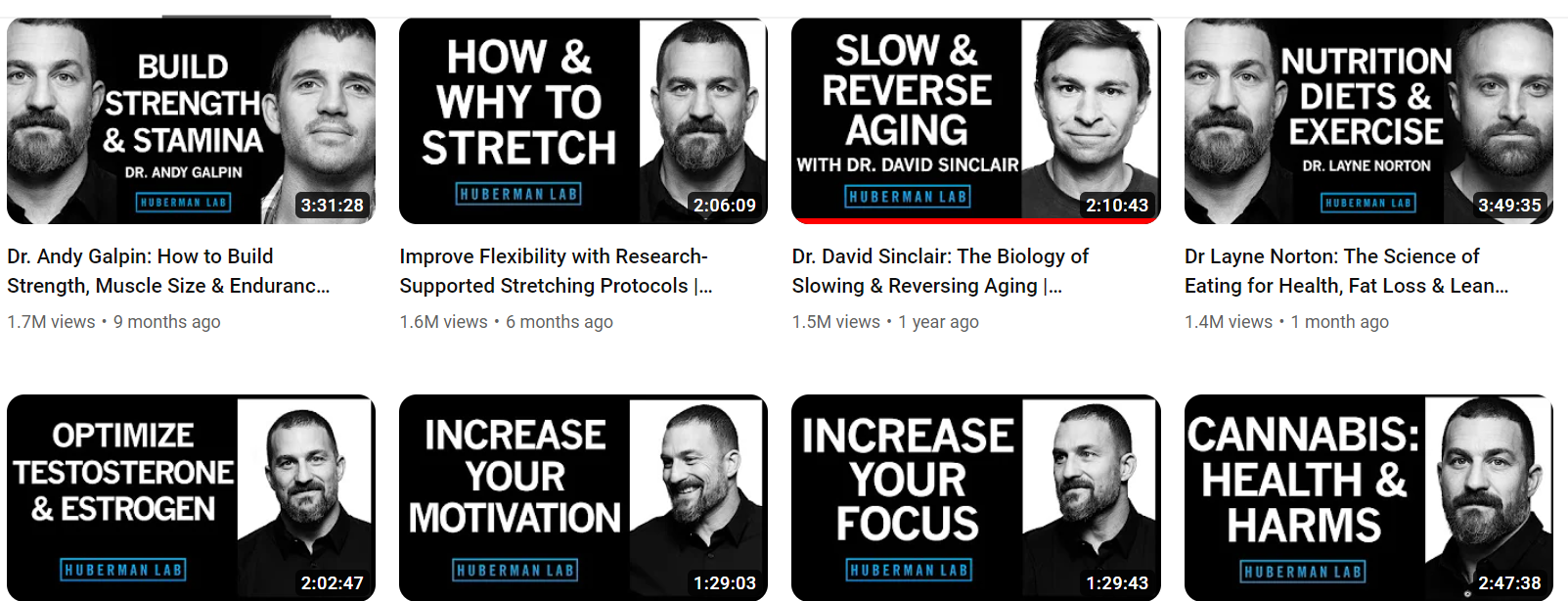The End of the World
Peter Zeihan’s job is to see the future.
To achieve it, he extrapolates from two under-appreciated realities:
People have stopped having kids (in quantities they used to)
The USA has lost interest in enabling global trade.
I've written on #1. So let's unpack #2, straight from his latest book, The End of the World (is just the Beginning).
The World America Made
After World War II, the United States had the only de-facto navy in the world. So we made a deal with our battered allies:
Uncle Sam: “Ok, guys. We’ll patrol the global oceans to guarantee your maritime trade. In return, side with us (not the Soviets)”
Allies: “Deal.”
The agreement worked. The Americans outlasted the Soviets and more importantly, we created a world in which anyone can trade for anything.
For the USA, it's meant cheaper goods (though not without job displacement). For other countries (think: Asia), it provided a pathway to prosperity that had never before existed.
Now, countries didn’t need to have oil, or even food for that matter. They could focus on what they were good at and trade for the the raw materials they needed to industrialize.
For the ultimate example…
Consider China
Fifty million people died of famine in China. In 1960.
Sixty years later, the world’s second largest economy mints 3000 millionaires per day.
What happened?
To oversimplify, China began to import things they needed (starting with food inputs and oil) and export the things they made (everything at the time of this writing).
And here’s the key: the PRC did it with every incoming and outgoing shipment being guaranteed by Uncle Sam’s boats.
What’s the Rub?
As you read this, there are thousands upon thousands of cargo ships in the Indian Ocean, each carrying millions of dollars in Chinese (and others’) imports and exports.
The ships’ defenses? Usually nothing.
The ships’ top speed? <20 mph
These multi-million dollar sitting ducks will slowly pass their Asian neighbors, make the horn of India at a snails’ pace, all before passing directly through multiple chokepoints in the middle east.
The 18-trillion dollar question: What keeps these ships safe?
Answer: Rhymes with “Blue Dress Gravy Meals”
(US Navy Seals, see Captain Phillips)
Follow-up: What happens if America stops guaranteeing these shipments?
Answer: We don't know.
This brings us to the crux of the book.
There was a time where it made sense for America to spend massive amounts of money and effort to patrol planet earth. The reasons for doing this are now gone.
The soviet threat that started it all? Gone since ‘91. Need for for foreign oil? See fracking.
In 2023, the US is:
A net-energy exporter.
Relatively unreliant on global trade. And most importantly:
Completely uninterested in subsidizing the rise of the CCP.
And our shrinking global Navy is beginning to reflect these realities.
Critiquing Zeihanism
My critique: like most prophets of doom, Zeihan underestimates the abilities of humans to adapt to significant changes. I find it unlikely that a hunger-games scenario ensues anytime soon on the global seas.
Even so, without the free-ride of the US Navy, the economics for trade-dependent countries could change quickly and drastically.
Are Vietnamese textiles still a good value when shipping insurance prices have quintipled? Is it still worth it for China to send iPhones to England when they have to pay off every country along the way to protect (and not take) their stuff?
We’re one missing freighter from finding out.
Summary
The End of the World is a straightforward prediction of what follows in a world with:
Less babies
Less U.S. Armada (and therefore less trade)
Nations that make babies and do things in-house and with close neighbors will go on thriving (see US, France). Countries that have banked their futures on free trade and specialization… may be in for a bumpy ride.
Despite his flaws (consistent “homer bias”, negative Nancy, overdramatic at times), if you want to understand the geopolitical dynamics shaping our future world, you may benefit from a (small) dose of the hiker-man from Iowa, Peter Zeihan.
For the non-reader consider his interview on the Joe Rogan Experience as a jumping off point:
Traveling Italy
To me, the magic of Italy is the layers - and I don’t just mean the lasagna.
At the base you’ve got Caesar, Sulla, and the glory of Rome. Drizzle on the middle ages with Pope, the Vatican, and the whole “center of Medieval Europe” thing. Toss on Michelangelo and Renaissance Florence and for the final topping, add the expressive people and sun-kissed arches that make up modern Italia.
What Makes Italy Unique
Italy wasn’t just the center of the world. Italy was the center of the world multiple times for multiple reasons. What takes your breath in Italy is the stratified symphony of interconnected layers. It’s empire, worship, and art, all telling the story of us.
My Italy Trip
Much ink has been spilt on this iconic destination, so let’s bring this post back down to earth. Here’s a personal take on my first big trip to Italy.
5 Places | 4 Foods | 3 Thoughts | 2 Keys | 1 Celebration
5 Places
Florence: Beautiful and world-changing. But in 2023 the most over-touristed place I’ve ever been. Let the Duomo and the Uffizi stun you - and then get out as fast as you can!
Tuscany and Umbria: Ancient hilltop cities sprinkled over lush, vineyard-filled valleys. The quiet beauty in the upper hills of Cortona is a spiritual experience - that you will need after bustling Florence :)
The Amalfi Coast: What’s makes a beautiful landscape? Mountains? Or sea? How about both. Might as well make it an endlessly tall cliff jutting out over the Mediterranean. Stack charming, ancient fishing villages one on top of another until they disappear into the clouds and BAM! You’ve got the Amalfi Coast.
Must-do: Path of the Gods and a sunset boat ride.
Rome: Fight the crowds to see the iconic sites- or if you’re like me, just watch Fall quietly creep in from the banks of the Tiber. St. Peter’s and the Pantheon are the must-sees. Everything else makes for a great “bike-by”.
Bologna: Go for the food and the arched sidewalks! … And did I mention the FOOD?
About that…
4 Foods
I ate all the carbs in Italy. Sue me. Here’s a few food highlights:
Olive Oil: Between mafia exports and no US regulation, the olio d'oliva we get in the states is very hit-or-miss (deep dive here). Olive oil in Italy is a wonder for the tastebuds and a miracle for your health!
Gelato: Most gelato is a 2x improvement on ice cream. But the shop by the two towers in Bologna? Nirvana.
Aperol Spritz: Aperol, prosecco, club soda, slice of fresh orange. One innkeepers secret: tonic water instead of club soda.
Pasta! Handcrafted, with 10x more variety than I knew existed. Must do: Ragu and Carbonara
In Italy, it’s the beauty in the little things. But the little things may just give you space to think about some bigger things…
3 Thoughts on Travel
Travel in 2023 is the best bang for your buck on the planet.
Let’s face it, America: housing, college, medical bills- most big things are wildly more expensive for millenials than they were for our parents.
The one thing that’s cheaper and smoother than ever before: seeing the world. Between miles, apps, and the advent of a little thing called “AirBnB”, travel is one thing we can do today with an ease that would blow the minds of our predecessors.
Anyone can travel- which brought me to my next realization.
Travel has been Democratized (for better and worse)
Upside: In 2023, everyone can go to Italy!
Downside: In 2023, everyone can go to Italy :/.
With travel becoming easier and cheaper, seeing popular sites, especially during peak season, is becoming a recipe for misery. The new key going forward? Finding the hidden gems.
And even when you nail it, travel only goes so far in life.
The Diminishing Returns of Travel
There is a diminishing return to getting away.
To be clear, I believe in travel. Travel and books are powerful ways to get outside of our “normal” routine… and more importantly, our “normal” assumptions about life.
But going is not an end in and of itself. As an idol, travel will leave you unfulfilled.
Time away serves its purpose to the degree that it re-awakens you to the meat and potatoes of a good life: spirituality, relationships, and meaningful work.
2 Keys to Avoid Misery
I’ll shoot straight with you. The iconic Italian spots were the most touristy places I’ve been to in my whole life. Once you’ve identified what you want to see in this sought-after country, the key in trip-planning is to solve for crowd-avoidance.
To do that:
NEVER GO TO ITALY IN PEAK-SEASON: A trip to Italy in the summer is a sure-fire way to spend two weeks on a hot, crowded bus being shuffled off to hot, crowded lines. We went in early October… I might go even later.
Biking is a Superpower: No exaggeration- biking saved our trips to Florence and Rome. Bypass the the packed subways and overflowing sidewalks, stay in a quiet spot, and see more in a day by bike than you can see in a week on foot.
And finally, it was a ten-year anniversary that brought us to the boot of Europe in the first place.
1 Decade of Marriage
They said marriage would be tough. Three kids, ten years, and a whole lot of life later, I see what they meant. But even if it ain’t always easy, it’s always good. In a world that increasingly pushes us towards atomization and dissolution, marriage is one of our last remaining tethers to connection, to family, and to unconditional love. And that’s worth strengthening - and celebrating.
It’s been an awesome 10 years- here’s to the next 10. Andiamo!
Booking Italy
Some of our friends think we’re super rich.
And of course, by any global or historical metric, we are (we all are). In reality things are often tight for our one-income, three-kid family.
What these friends (who, for the record, actually make >2x our income with less kids!) are thinking is:
How do you guys take such bougie trips?
Let me give you a peek behind the curtain. As a case study, we recently took a luxury-hotel-filled ten-year anniversary trip to Italy.
Turn Big Spend into Points
In 2022, the silver-lining to the death of our air conditioner was the chance to purchase a replacement mini-split with a brand new credit card. So we applied for a new Amex Platinum card, and four days later bought our $6000 mini-split with it, netting us an instant 131,000 Amex points.
Later that fall when it came time to put some down payments on two roof replacements, we applied for the IHG Business Premier card, which gave us a quick 143,000 IHG points.
Those points sat idly in our rewards accounts until we had the spark of an idea: 2 weeks. No kids. Italy.
To do it, we just needed to turn those points into tickets.
Turn Points into Tickets
Italy costs more points than other European destinations, but the nudge that pushed us over the edge was a 25% transfer bonus to Air France that popped up in Fall of ‘22 - making the Italy flights more reasonable.
Once we found some flights and dates that worked w/ our backup-child-rearers, we transferred the points from Amex to Flying Blue (Air France’s mileage program) and for 92,000 points (RT) my wife and I were on our way to Italy. But we were still homeless.
Turn Points into Hotel Rooms
With a flight into Bologna and a flight out of Rome booked, we plotted a rough north-south itinerary. Where would we stay? We let the IHG travel portal guide the way. After some exploration we landed on a few “Mr. and Mrs. Smith” estates:
Three nights in Florence (Riva Lofts)
Two Nights in Tuscany (Fontelunga)
One Night in Umbria (Aethos Saragano)
Paying for roofs never looked so good. The IHG points landed us six free nights in some swanky villas.
We had to snag two AirBnBs for the last week, but at <$150/night (and with AirBnB gift cards regularly on sale for 10-15% off), we felt like we got some pretty good value.
Beautiful Loft on the Tiber
Morning Coffee from the Amalfi cliffs
Not Totally Free
In full transparency, money was still spent. Between car rental, gas, a sunset boat ride, credit card/ticket fees, and all the gelato and pasta in Italy, the whole thing was still over $2000. For us, that ain’t chump change.
But be honest. If this girl was willing to stay married for ten years, wouldn’t you take her to Italy, too?!
My next post explores what all that hassle and cost got us:
For more explicit instructions on how to break into the game of points and travel, read my old post:
It’s Time for a Raise
It’s time to get back on the wagon with our finances.
To be clear, we haven’t been complete money slobs since we had kids. Yet, almost as a rule, we’ve consistently passed over rental properties in favor of minivans and traded maximum mutual funds for modern-day time luxuries like raising our kids at home. And you know what? I wouldn’t trade it.
These days, though, with kids about to head off to elementary school it’s time to play financial catch-up.
Enter the deceptively powerful side hustle. Let me illustrate its power with an example.
Fictional Frank’s Favorite Function
Fictional Frank is making $50,000/year with a savings rate of 20%. In other words, Frank is putting away $10,000 per year towards his long term goals. Not bad.
However, let’s say Frank picks up a side hustle selling homemade mugs, netting himself another $10,000/year. This amount might seem unimportant compared to his $50k salary.
He might ask, “Is all that mug-making work worth it for a mere 10k? Will it actually move the needle?
Enthusiastically, I say “Yes!”
Hidden beneath Frank’s humble $10k/yr side hustle is the fact that Frank has just doubled his savings rate. Translation: wherever he’s going with his goals (retirement, lake cabin, South of France, etc.) Frank will cut his time to reach his goal in half with this small side hustle.
(Bonus: If he can add another 10k/yr he has now tripled his savings rate. He’s cut his savings time by 2/3. Invest the proceeds and the effect is even more powerful.)
Even better, this new income exists outside of his 9-5 gig. Unlike a bonus or raise, this new 10k/year is not at the mercy of his company’s revenue, his relationship with his manager, or some recession which may or may not come.
“Fine” I can hear you saying, “I guess I wouldn’t mind doubling or tripling my savings rate”, I’ll just google ‘side hustles’ and take the first thing I see.
I wouldn’t do that.
One Size does not Fit All
Despite all the side hustle talk on the internet, few content creators distinguish between the sizes of side hustles and how they may or may not fit into your life.
Young and kidless? You’ve likely got bandwidth to go big (like I kinda-sorta did). Look up Brandon Turner. Alex Hormozi. Or Codie Sanchez. These are the current-day kings of the “big millionaire side hustle”. They’ll push you to add skills, put in long hours on nights and weekends, and build something that scales big and quick.
Side Hustle For the Time-Starved
For many of us, that kind of hustle isn’t possible (or desired). Do not despair. Even the most time starved among us (busy parents included) can still find a side hustle that fits without nuking your family in the process. You’ll need to be picky, though, and select only side hustles that are flexible, low-time, and low-energy. No home runs for you. Instead, you’re going to hit regular and frequent singles and it’s going to dramatically change your financial future.
Ok, enough about you - let’s talk about me :)
Here’s one busy dad’s plan to try and drum up an extra $50k or so in the coming year. Perhaps one of the ideas could work for you if you’re in a financial pinch.
Speaking of a financial pinch…
My Side Hustle Plan
1. Poop with Purpose ($14,000)
There is a literal crapload of research going on in the world of gut biota. Specifically, companies are successfully researching how to use gut biota from a healthy “#2” to heal everything from IBS to obesity(!). It’s an incredible medical advancement, but it’s one that requires tremendous amounts of doo-doo. What the crap does that mean for your finances? Ladies and gentlemen, you are currently living in the age of poo for pay.
Don’t believe me? At this moment, there are people pulling down $180,000/year as professional poopers. If you live around the twin cities, odds are you’re (literally) flushing money down the toilet every single day.
The place I donate at is Rebiotix in Roseville, MN. Their mission is focused on eliminating a difficult digestive condition called C. diff. Willing donors can expect a more purposeful poo in addition to up to $60 per day with qualifying “donations”. With the other perks ($50 for biweekly COVID tests), I’m hoping to average about $300 per week. That may not sound like much, but if I can do it, this little morning habit will net $1200/month… which amounts to $14,000/year!
Throw in a spouse and you can double it. For fun, I did the math and (incredibly), an eligible couple could make up to $46,400 dollars per year for going to the bathroom.
If you do it, please mention my name as a referral when you sign up!
2. Bank and Credit Card Bonuses ($15,000)
Free travel is great. By the end of this year, Lord-willing, I’ll have made it to Spain and Portugal, Japan, Quebec, and Italy - all for free. In addition to the free flights and hotels, I try to regularly hit lucrative bank signup bonuses for cash.
Whether it was Royal Credit Union in the spring for $600 or Amex business checking accounts last winter for $2400, making bank and credit card signups a discipline can accrue into a massive (often tax-free) financial boost.
Typical tracking spreadsheet for me
When you total the signup bonuses (and my recently opened 5% interest checking account from Wealthfront), I’ve made over $15,000 in the last year from comfort of my porch and I’ll be continuing this discipline into the fall.
Big Pink Box: If you’re interested in hearing when I’m doing a card / bank bonus, just shoot me an email (brett@brettwrites.com). I’ll try to remember and loop you in on some of the stuff that I’m up to in realtime.
3. Fire my property manager ($18,000/ year)
Less than a month into our third kid, our rental property basement was drowning in melting snow - and we were drowning in babies. So, after a near-flooded basement in 2019, we reluctantly hired our first property manager.
The good: I’ve been able to keep my properties through the most intense years of my life.
The bad: The results have varied from “acceptable” to “nauseating”
The ugly: My property managers have generally been asleep at the wheel. The one thing they have been consistent at is charging massive amounts of money and neglecting my tenants. Sure, the $90/unit fee sounds amazing… but the reality is that the costs (placement and renewal fees, vacancies, turnover, and on and on) may eventually run your business into the ground.
I’m banking that even a half-ass job from myself, or honestly, even a “1/10 ass job” when I’m on the other side of the planet, can provide my tenants with a much smoother experience- and save me $15k-$20k/year in the process.
4. Etc
Pre-school is finally ending for us! ($6k/year savings). My wife is going to sub part time in the fall! ($10-20k/year?) And who knows what else will come up in this crazy land of opportunity we call America?
Let’s goooooo!
Conclusion
We all want a raise, don’t we? If you’re like me, though, you’d rather not wait around for an employer who may or may not come through with an end-of-the-year money shower. With recession clouds looming, I’m taking matters into my own hands.
What about you? Would you consider a side hustle if it meant reaching your goals in half the time (or less)? If so, what’s your side gig?!
Of Pyrenees and People
I’m 35,000 feet over the Pyrenees. Out front, clouds rise above the Bay of Biscay. Is that Bilbao in the distance?
Back home, I know Late Winter Despair must be settling in. So, it must be time for a travel post from my 500-mph chair in the sky.
These last two weeks have swept me from a windy work conference in seaside Malaga, Spain to the steep hills of Lisbon, Portugal with a few stops along the way.
Here’s what I saw.
Malaga, Spain:
Quaint beach city with beautiful Spanish center. I quickly realized, however, that living on the Cote D’Azure last year has spoiled me for life as far as beach towns go.
Granada, Spain:
Quiet mountain city with snow-capped Sierra Nevada backdrop. People go here for the Al Hambra craftsmanship and are not disappointed. The stonework will boggle your mind.
Algarve (Southern coast of Portugal): Picturesque and cliff-lined beach resort region on the edge of the old world. Its people are noticeably kind and this was the perfect place (with free hotel nights!) to relax after an intense conference.
Lisbon, Portugal: Is this hilly, tiled city the hottest spot in Europe right now? Maybe. For whatever reason… I found it underwhelming.
It struck me as dirty and only “generically” European feeling. For me, the tiled exteriors couldn’t compete with the iconic vibes of a France, Italy or Germany. Finally, any remaining traces of affordability or “undiscoveredness” seemed to have drifted to sea by the time I showed up. I was glad I came, but was ready to leave by the end.
Sevilla, Spain:
I finish with this city because it blew me away. The crown jewel of Southern Spain is endless winding streets of riverside beauty on a surprisingly large scale. Add the quiet, the parks, and the pedestrian-friendliness and you’ve got an eminently livable city that may warrant a return.
History Below My Feet
One thing that set this trip apart from others was the unshakeable weight of history that seemed to emanate from the bumpy Spanish cobblestone. I sensed it on sunset walks through the breathtaking Plaza de Espana. I felt it as I made my way deep into the heart of Alhambra.
Was it the ghost of Columbus, who once made his world-shaking pitch for a few ships on this very spot? Was it memories of Peru, and the gravity of standing where Pizarro once embarked from on his way to bringing Atahualpa and the entire Incan empire to its knees?
In slower moments, I meditated on the reality that these streets once unleashed the most prolific explorers and brutal conquerors of all time.
Belem Tower
From Cortez and Columbus in Spain, to every Portuguese sailor ever waved off by the king from Belem Tower, how could this tiny corner of the Iberian peninsula have rewritten the tongues of every man, woman, and child, from northern Mexico to the southern tip of Chile? (short answer: Guns, Germs, and Steel).
Maybe it was the reflection-inducing solo nature of my travel, my growing appreciation for history, or perhaps some secret ingredient in the acorn-fed jamon iberico, but my “N” mind couldn’t help wandering beyond the tapas in front of me and into the distant past. This place deeply shaped the world we know today - and the significance of it was in the air.
Finally, the best aspect of my trip wasn’t pasteis or cathedrals, or any thing in Andalucia itself.
Jobs and Friends
It had been three years since I had seen my coworkers. Three years. Finally, from the desert of isolation, I emerged to drink from the firehose of human connection.
Of course, there was the expected death-by-powerpoint which you’ll get at any work conference. But between sessions, there was ample time to dig deep with old friends, yak it up with Frenchmen and Aussies alike, and discuss life in Tokyo with Japanese companions.
So far, the Great Resignation hasn’t shaken me loose from the “company of my youth”. Twelve years in with my current place of employment, and I know that there’s probably more money out there and certainly novelty and excitement in the world of other tech careers.
But I wonder. Where else can I reminisce with people who knew me as a 23-year-old kid? At what company can we laugh about the old startup days, working from a cheap container behind a little church in southern California?
I haven’t ruled out a career change. But staring out at the darkened Mediterranean sky, dusting off memories piled up over the years with old friends from far reaches of the planet - wasn’t it clear that there are some things that money can’t buy?
Maybe what I’ve got at my job is special - or maybe I’ve just been drinking the kool-aid for too long. For now, the plane is touching down in dreary Amsterdam. With sun-kissed sea in the rear-view, and the place they call me “dad” approaching, all I know is that I’m grateful. And maybe, for now, that’s enough.
Thinking in 2023
How do people in the 2020s think?
“Uh… correctly?” might be the unspoken answer. It’s the assumption in every age.
A Medieval European might say the same thing… on her way to a witch burning. Enlightenment thinkers assumed their way of thinking would usher in a better, more peaceful world…before the most enlightened thrust us into the bloodiest century in human history.
Never considering how you evaluate truth is to let the spirit of the age pull you downstream without your agreement or even your recognition.
My goal in this post is to give you fins.
Now, my guess is that you have little interest in philosophy (alas, a trapping of our current age).
But as I look back on my own attempts to understand the world, the most important discovery was the most obvious: we are not the first people to try to make sense of life. So let me bring you into one of my favorite muses - the history of how humans in the west have thought.
“BORING. What’s in it for me?” you might rightly ask.
To be frank, without this basic history, it is impossible to understand the present state of western culture- the discussions and the arguments that will shape our future. Secondly, without an understanding of the different ways that people approach truth, the danger is that you yourself are co-opted into the bubble of someone else’s way of thinking without even knowing it.
That brings us back to our original question: how are we thinking in 2023?
The way I see it, we are in the middle of a winner-take-all cagematch between three very different epistemologies.
A New Word
Epistemology: a too-fancy philosophy term that simply means "how you know what you know".
So a toddler who knows what’s true about the world because mom said so has a "mommy epistemology". Your neighbor who reads his horoscope to know if he should start that business (or just curl up in the fetal position) could be said to have an "astrological epistemology".
Your epistemology is not a catalog of your beliefs - your epistemology is how you came to those beliefs. It is the rubric by which we know something is true or false.
This is a little meta, sure- but important. Despite the infinite expressions of human thought since the dawn of western civilization, in terms of how those beliefs arose, there have been three epistemological power players - and we are in the middle of their fight.
To understand them, go back with me for a second.
Mapping the Zeitgeist
The (Really) Old Days
Before farming, there wasn’t much time to think. We were too busy chasing berries, hunting buffalo, and otherwise reaping the curse of the ground. The “big thoughts” we did think were typically religious and spiritual in nature.
Farming brought food surplus. Food surplus gave us the time to do all the other things that we now know as “civilization” - including thinking like we had never thought before.
From one such civilization (Ancient Greece), there arose men who elevated logic and clear thinking to unprecedented heights. While most Greeks simply hoped the gods would be good and went on with their life, these “philosophers” asked big questions and tried to carefully reason their way to the answers.
Techniques and entire schools of thought cropped up around this systematic way of thinking, eventually trickling down (as philosophy does) from the philosophers to the culture.
For the first time, a rationalist epistemology was emerging,
Rationalism would survive the fall of Greece- but when its conquerors, the Romans fell, rationalism would (incredibly) go the way of the dodo for over a thousand years.
Before Rome fell, though, something incredible happened in the history of human thought. Constantine (the emperor of Rome) became a Christian - and Rationalism had a new rival.
The Age of Faith
Humans have always looked to spirituality and religion for answers to life’s big questions. But when Rome “Christianized” at the height of its power and (and then-height of western philosophy), religious thinking was levelled-up and infused into the culture with unprecedented thoroughness. Christian thought and Greek philosophy mingled, sparred, and more or less lived alongside each other. Until, somewhere along the way, the rationalism bestowed on us by the Greeks, was, essentially… lost. For over a millenia, we understood the world through the lens of church and bible (and sometimes superstition).
Origins, purpose, meaning - the church provided the answers. But more fundamentally, it provided a way of knowing.
Where did we come from? See what the bible says. How do I live a healthy, fulfilling life? See what the pope says. Where is the earth in relation to the universe? See what the church says.
To be a Medieval Christian wasn’t simply to believe the truths of religion- it was to know what was true by testing it against the stance of religious authority
For over a thousand years, the west had a religious epistemology.
Until the enlightenment turned that upside down forever.
The Age of Reason
If the Renaissance was Europe reacquiring its taste for Greek Rationalism, then the Enlightenment was the west getting drunk on the old 1000-year-vintage logic.
What was the enlightenmetn? Well, the characters are myriad and the effects incalculable (think everything from America to the iPhone). For our purposes, let’s simply zoom in on a short, French bachelor named Rene Descartes.
Perceiving a growing pressure from enlightenment thinkers, Descartes set out with a simple goal: to defend his beloved Catholic church against the assault of pure reason. His idea? To show that the truths of the Christian religion could be arrived at by reason alone - with no revelation required (Bible, pope, or otherwise).
In his Meditations he arrived at the same old biblical truths (the existence of God, the immortality of the soul, etc.), but in “showing his work”, he explicitly avoided using the bible as his standard of truth. Logic alone was enough.
Descartes wouldn’t understand the impact of his work until it was too late.
After being condemned by the church he was trying to save, copycats would soon follow - thinkers who loved how he thought (using reason alone) but who generally disagreed with his conclusions.
Modern philosophy was born.
The rational epistemology that had lain dormant since the days of Aristotle, was back - and this time on steroids. Science and Reason were in and the Bible was on the way out among the thinking class. But was Reason alone sufficient to guide us?
The Assault on Reason
For “rationalists” of the 19th century, the future couldn’t be brighter. Sure, there was a growing disparity between the different conclusions the philosophers were coming to, but with universally-accessible Reason and Science guiding the way (in contrast to faith-based claims), it was only a matter of time before Truth about everything from God to governance would emerge.
And yet…
Even in these halcyon days, cracks were already beginning to show. While Spinoza and Berkeley built their unassailable castles of rationality, Kierkegaard and Hume were loading enough dynamite into the cellar to blow the Rationalist project up forever.
Oh, Kierkegaard…
While Hume’s problem of induction called into question the truth value of scientific claims, across the North Sea, Soren Kierkegaard was getting fed up with Hegel’s rational co-opting of the Christian faith. He questioned the very value of cold, reasoned Truth altogether. After all, what good is a Truth “out there” that has no bearing on our day-to-day lives anyways? Isn’t our lived experience more important?
Beyond Truth
Rationalism’s heyday would continue into the 1900s (with the positivists pushing rationalism to the breaking point). But by the time the last Nazis were cleared out of Europe and the blood had dried on a second gruesome world war, the consensus among philosophers wasn’t just that God was dead, but the very project of modern philosophy (the sufficiency of Reason in search of Universal Truth) - lay as dead as the men on the beaches of Normandy.
My local library while I was in France, dedicated to Camus, a leading existentialist thinker)
Before any remaining rationalists could pick up the philosophical pieces after World War II, it was Jean-Paul Sarte and the French existentialists that would set the tone for philosophy in the latter half of the twentieth century. If God was dead, then meaning was for us to create. Perhaps there was no grand narrative to figure out. And even if there was, hadn’t the last century shown us the impossibility of one person reasoning to it from their limited, singular vantage point?
Maybe our own experiences of the world, finding and living our own “truth” was the best we could hope for. Maybe Nietzsche had it when he said “might makes right”. What if Truth wasn’t something out there to find through reason and argumentation, but just a tool, defined and then used by those in power to dominate.
Post-modernism, along with post-modern epistemology was born. And as it always has, this view of the world, this definition of truth, did not stay in the dusty halls of academia. What was once an odd, minority view held by disillusioned Europeans has found its way to the main stage- our culture.
Today
Do you still think this foray abstract or esoteric? If you take one thing from this post, let it be this: The thoughts that philosophers think become the thoughts that everyone thinks (about 100 years later).
Open a newspaper, scroll through your Twitter feed, or simply look around.
In our day the gender and even the race of a person is not determined by an objective measure, say XY chromosome pairs or genetic ancestry. That’s where a rational or even a religious epistemology would push us to. In our culture, gender and race aren’t up for argument. After all, if the postmoderns are right, there is no objective truth - so why can’t gender and race and anything else be determined by how an individual experiences his or her or zirself.
While Martin Luther King Jr. dreamed a dream in which his four children could “live in a nation where they will not be judged by the color of their skin, but by the content of their character”, critical race theorists dream of a day when color, gender, and sexuality are the primary means by which we are to be judged.
And of course, in just two decades, we’ve gone from outrage over Bill Clinton’s big lie to the acceptance- and celebration of- our first fully post-truth president, living and proclaiming his own truth on all things big and small - from weather to his own re-election. Facts be damned.
Ideas have consequences. And right now we’re living through them.
These developments in western culture are not random. They are the outworking of a 70-year-old view of truth that has finally made its way from the lecture hall to the town hall.
Signs of the Times
Still not sure about all of this? Look at how thought leaders of today are aligning themselves.
On the American political left, Bill Maher, long the prime mocker of all things conservative, has found common cause with the American right. After all, in the old days he could at least argue over facts. He is not alone.
Whether it’s Jordan Peterson becoming the Canadian posterboy for reason or Joe Rogan becoming the number one podcast on planet Earth, these “old” liberals (with their rationalist epistemology) have taken up common cause over something far more concerning than priests talking about the bible (religious epistemology). More fundamentally, with post-modern thought, we are staring down the barrel of the end of truth itself.
Similar schisms exist on the right, with some Republicans merely agreeing with our former president’s policies… and others ready to jettison little details like ballot counts and evidence. From a post-modern viewpoint, truth is secondary and narrative is king- the real game is power.
The Real Battle
This article isn’t to push you to a certain epistemology (much less a particular belief). It's to give us better categories and narratives than the ones CNN and Fox are using to profit from our fear and anger. The key battle of our time isn’t between left and right, black and white, or rich and poor. It’s more fundamental than that. The battle that will determine our future is over what truth is and how we arrive at it.
Will reason guide us? Is evidence and rational argument the way to discover truth - or will power grabs and propaganda be required to create truth? Long the source of our ideas about morality, equality and truth itself, what role will religious understanding play in the minds of westerners in this century?
For all the helpful critique that postmodernism has given us about the limits of reason and the importance of experience, we need think carefully about this view of truth - and the role that this way of thinking should play in our future.
The last great epistemological battle was between priest and professor - and it was intense. People died, power shifted, and we all view the world differently because of it.
You are living through the next great battle. Think carefully.
In 1832, Hokusai painted his famous “Thirty-six Views of Mount Fuji”. With each painting, he gave a fuller view of the mountain- and his own perspective. Here’s one of my “36 (or so) views of the world”. It’s an attempt to illuminate an aspect of the present by telling a story of the world through one lens. This essay covers one of my favorite (though admittedly abstract) lenses: epistemology.
Favorite Things: 2022
New (to me) Books
Breath (James Nestor)
My summary:
Most of us breathe poorly.
Breathing poorly creates a myriad of health issues.
Anyone can improve their breathing and feel better, reverse ailments, and live longer.
I enjoyed Breath on two levels. First, as an occasional dabbler into health and self-improvement literature, the book left me wondering why it hadn’t occurred to me to improve the most fundamental activity involved in staying alive.
And secondly, as a wannabe writer, I was floored by Nestor's ability to create a scientific book on breathing (yes, BREATHING) that is utterly riveting.
With eccentric characters playing out the story across time and space (yes, he really illegally journeyed miles into the catacombs under Paris to observe ancient skulls), Breath feels more like The Da Vinci Code than breathing manual.
Here's a teaser passage from his conversation with a group of semi-insane "free divers" (people who dive to ~300 feet below the surface of the ocean- with no gear).
Another diver told me that some methods of breathing will nourish our brains, while others will kill neurons; some will make us healthy, while others will hasten our death.
They told crazy stories, about how they'd breathed in ways that expanded the size of their lungs by 30 percent or more. They told me about an Indian doctor who lost several pounds by simply changing the way he inhaled, and about another man who was injected with the bacterial endotoxin E. coli, then breathed in a rhythmic pattern to stimulate his immune system and destroy the toxins within minutes. They told me about women who put their cancers into remission and monks who could melt circles in the snow around their bare bodies over a period of several hours. It all sounded nuts.
They discovered that our capacity to breathe has changed through the long processes of human evolution, and that the way we breathe has gotten markedly worse since the dawn of the Industrial Age. They discovered that 90 percent of us-very likely me, you, and almost everyone you know is breathing incorrectly and that this failure is either causing or aggravating a laundry list of chronic diseases.
On a more inspiring note, some of these researchers were also showing that many modern maladies-asthma, anxiety, attention deficit hyperactivity disorder, psoriasis, and more-could either be reduced or reversed simply by changing the way we inhale and exhale.
The Count of Monte Cristo
Many classics are good to read in the same way that spinach is good to eat - helpful, but not particularly enjoyable. This is not true of Dumas' classic.
Beginning in Southern France with a hook to end all hooks, the story eventually moves from the legendary Chateu D'If to Rome and Paris at a pace that will satisfy the most attention-deficient modern readers. Dumas' classic tale of revenge and redemption is still a winner for plot-lovers in 2022. Once read, the film will look like a silly, B-list child's play by comparison.
Re-reads
Ruthless Elimination of Hurry (John Mark Comer) and Get Your Life Back (John Eldredge)
Good books give us the truth we need at the right time. Fifteen years since Steve Jobs' placed supercomputing compulsion machines into our pocket, these books are the kind we need right now if our inner life is to survive the exhausting, lonely age of constant connection.
While Comer masterfully puts words to the challenges of the soul in the age of the internet, Eldredge's writing is the balm and direction we need to survive the digital age with spiritual life intact.
4-Hour Workweek
This all-time favorite found me again at just the right time. As my peers graduate to large suburban houses and new cars (along with the associated mortgages, car payments, and oftentimes high stress jobs to support them), Tim's 2007 classic was a timely reminder why we're taking the road less traveled. So far, our family has tried to prioritize freedom over convenience and experiences over stuff. So far, that has made all the difference.
Apps
Obsidian (w/ Readwise)
For all the content you read, the videos you watch, the podcasts you listen to - what percentage do you actually retain? What if the key points of every piece of consumed media along with every noteworthy thought you had were stored in an easily searchable database for instant recall for the rest of your life?
This is the promise of the "Second Brain" - a personal journal / content library on steroids made possible by modern technology. I've chosen Obsidian as the "hub" of my second brain and have been very pleased.
For more on the topic of the second brain, Tiago Forte is your man.
Duolingo
For all the flack it got in the reviews I read, Duolingo was an incredible resource for me. With just 15 minutes / day, I had enough francaise to outfrench 95% of tourists and even hang a bit conversationally. With a big travel year ahead, I will be leaning on the premium version to keep my French sharp and get up to speed quickly in Spanish, Portugese, Japanese, and Italian!
Podcast
Huberman Labs
Picture a muscly, decorated, middle-aged Stanford professor with an encyclopedic knowledge of current health science and incredible ability to communicate it to non-scientists. What if, instead of pushing out esoteric academic papers, this jacked academic put his energies toward distilling the most relevant, cutting-edge health science and making it practical for normies like you and me?
In that case, you’d have Andrew Huberman. Every video he publishes essentially becomes the most helpful resource ever made on that subject.
Whether it's losing weight, unlocking motivation, mastering sleep or using cold exposure to your advantage, the end result of watching him is an "everyman's PhD" in your own mind and body.
Purchase
DIY 4-zone mini split system
If you have an old house like our 1920s gem (complete with microscopic ductwork), I would highly recommend a mini-split system. With our old AC condenser dead on return from France, we eschewed replacing it with a standard condenser and instead, put in a 4-headed mini split. Now, we have hyper-efficient climate control in rooms that previously got nary a trickle of conditioned air from the vent. Newer systems can also heat down to -10 degrees outdoor temperature or colder. We use ours year round!
If you are handy, I highly recommend a Mr. Cool DIY system as it costs ~1/4 the price of what a traditional installation would cost.
Habits
Sauna and Ice Bath
Whether your motivation has to do with heat-shock proteins and longevity (like reducing all-cause mortality by 40%), or just embracing winter while your stress melts away, I highly recommend finding a way to access a sauna. This year, I scored a free freezer and added a cold plunge to my "northern spa" backyard setup.
Guided Lectio Divina
Slow, guided scripture meditations in the age of fast information. The ancient practice, fresh to your Spotify account every day.
Wim Hof Breathing
If you haven't yet discovered him, Wim Hof is, at his core, a crazy Dutch man obsessed with cold water and intense breathing. For years, he was viewed as a bit of a kook- until he started achieving crazy results that continue to baffle scientists to this day (he is the man who directed his immune system to kill the injected E. Coli in the "Breath" passage above). I've done the cold for years, but recently started his breathing regimen, to good effect.
Applying for Credit Cards
With mini splits and new roof bills flying at us, we've been hitting the credit card applications hard. For just a few hundred bucks, we've booked round-trip tickets for the whole family to Montreal, a ten-year anniversary getaway to Italy, and even banked up enough Air France points for a family trip back across the pond in 2024.
Going without alcohol for long stretches
Between all the emerging literature on "Alcohol and the Brain" and a few "bad reaction" type experiences with alcohol this year, I've really put the substance (and its place in my life) under the microscope. Still figuring out what I'm going to do moving forward, but the days of "drinking without thinking" are over.
Moment
La France
Have you ever recognized one of the great seasons of your life while you were in it?
For me, that was our two months in France. Pastries and swims in the old city aside, the experience of visiting my wife’s home for two years, having our moms come with for the ride, and even being "adopted" by an extremely kind French family in Arles was nothing short of magique.
If I get hit by a bus tomorrow, at least we had France. This trip was all the things we wanted it to be and more.
Thought
"What has been will not always be"
I'm convinced that navigating your thirties is a worldview-altering experience. Maybe it was two babies completely rearranging my life in an instant. Or perhaps watching those babies grow to school age and all of a sudden running off and playing with their friends. Or maybe it's just watching the slow march of time slowly chip away at everything from dishwashers to my upper back.
The steady invincibility I felt in my twenties has been replaced by a sense of frailty and temporality in my thirties. These last few years have instilled the realization that things don't last, at least not on this side of the grave. If you're my age, you might even be in the tail end in some areas of your life.
As I walked through the MIA yesterday, this painting grabbed me by the lapels:
“Springtime of Life” - Jean-Baptiste-Camille Corot, 1871
I was overwhelmed by the feeling that I can only describe as fleetingness. As I meditated on this young girl, soon to become an old woman... and now long-buried somewhere in Europe, here was the thought I journaled:
"Oh to be young again" is a sentiment I'm starting to understand, even starting to feel. For the faithless, it must be a sad thought. But for those who hope for more than this “earthly tent", this feeling is another pointer to what should… and will be.
Hope this list finds you well. Cheers to 2023.







